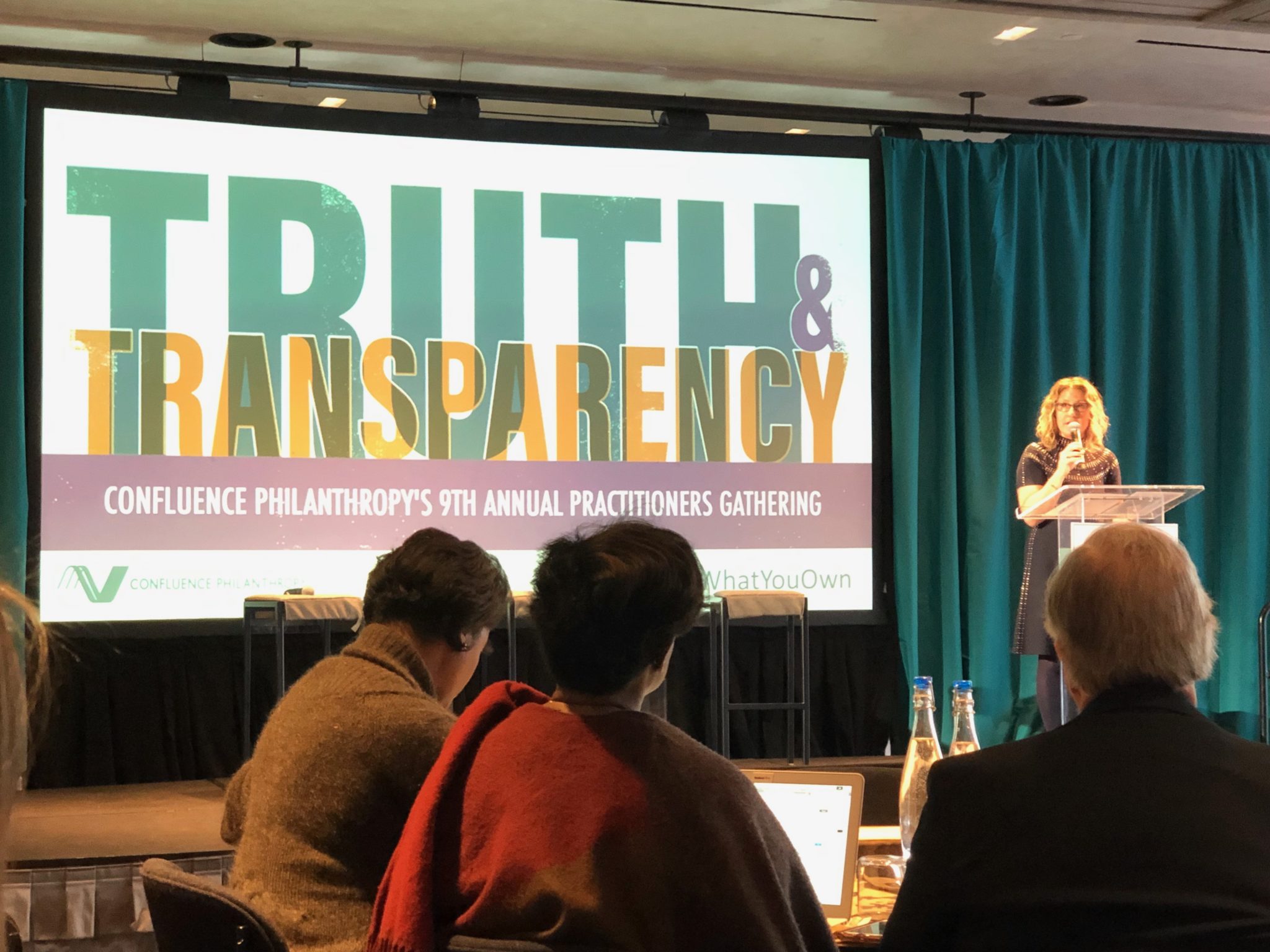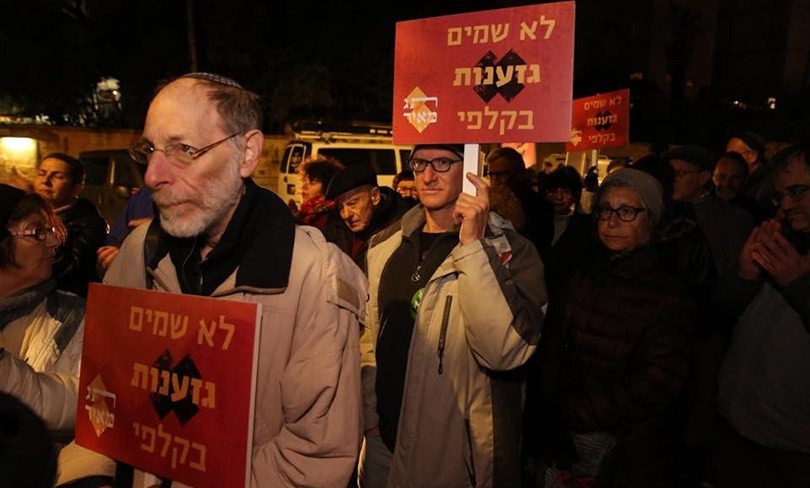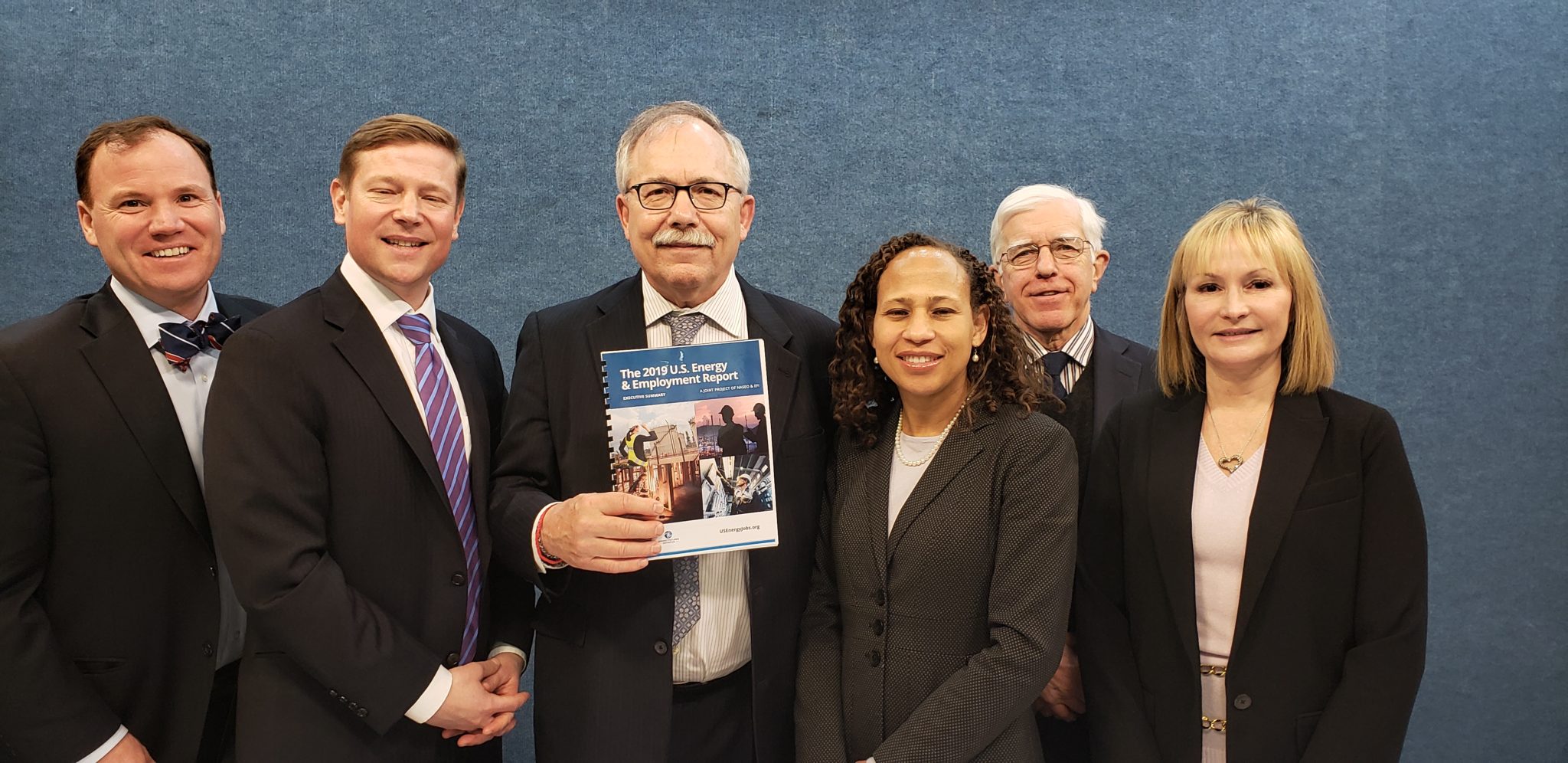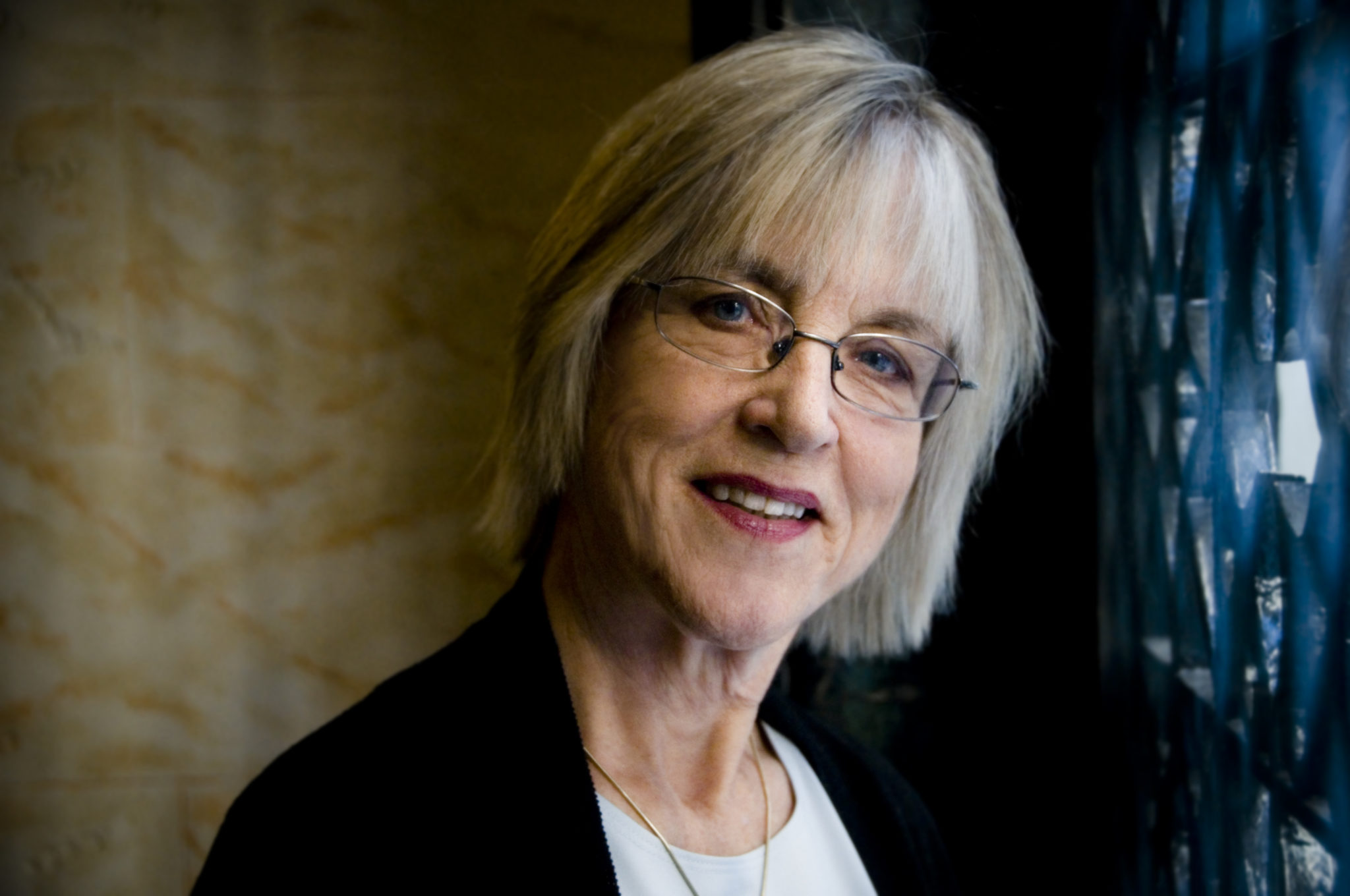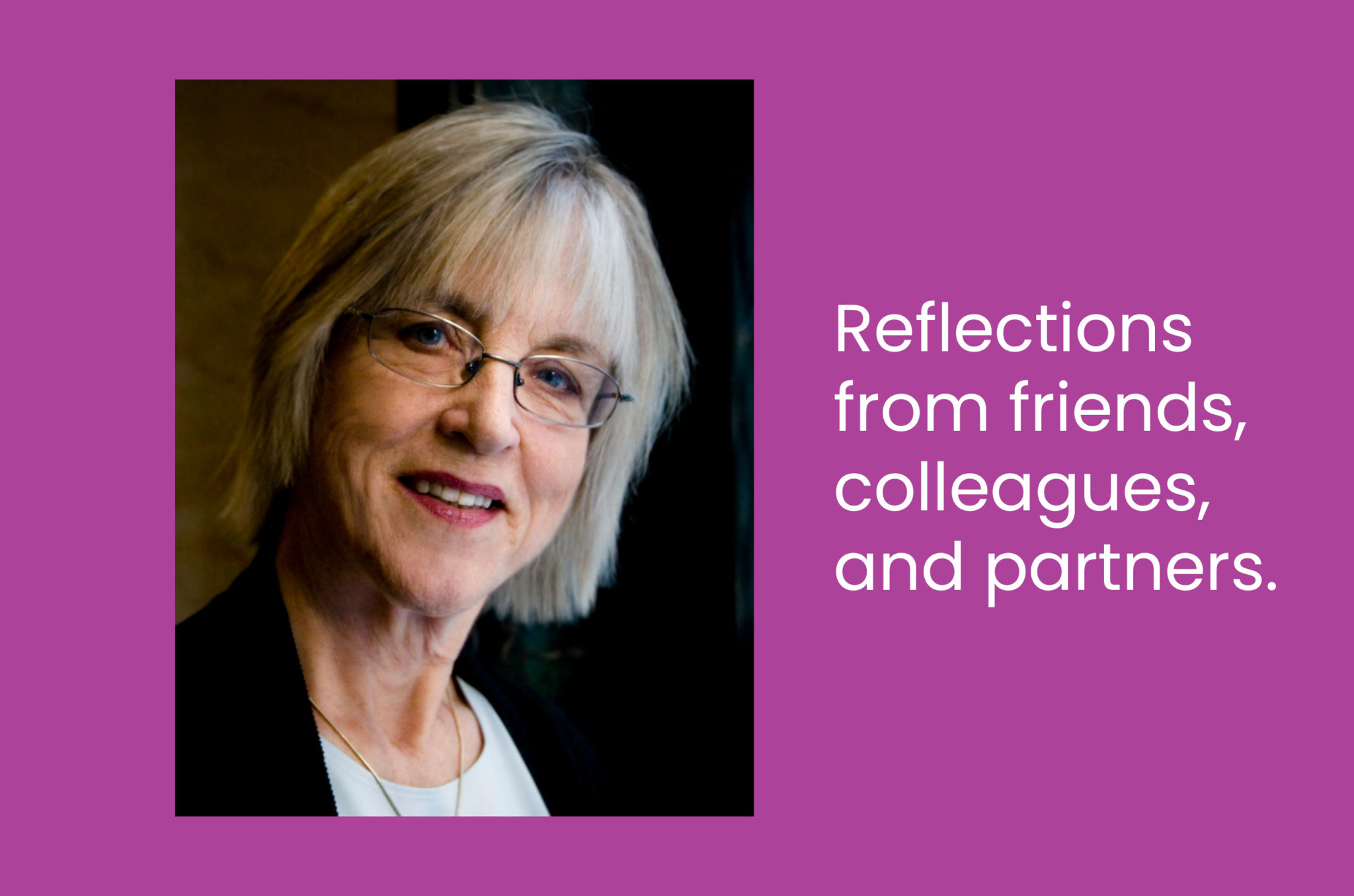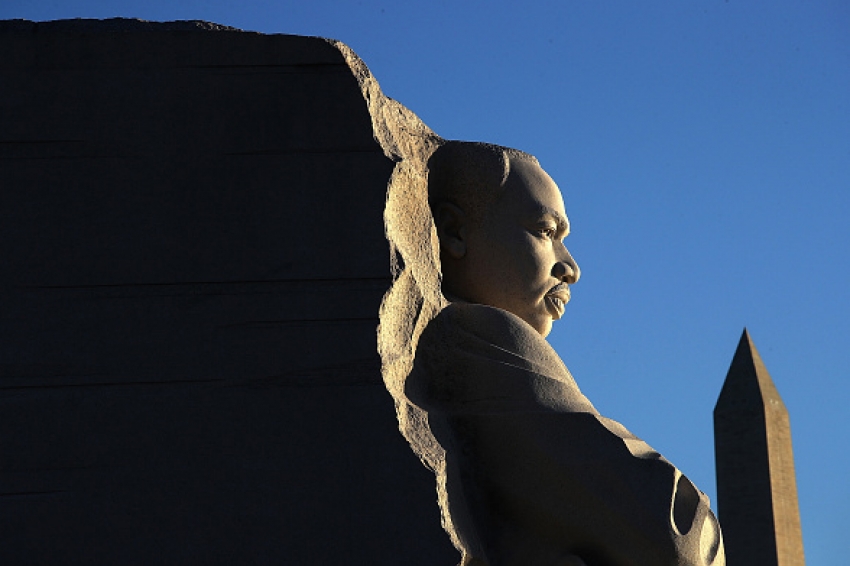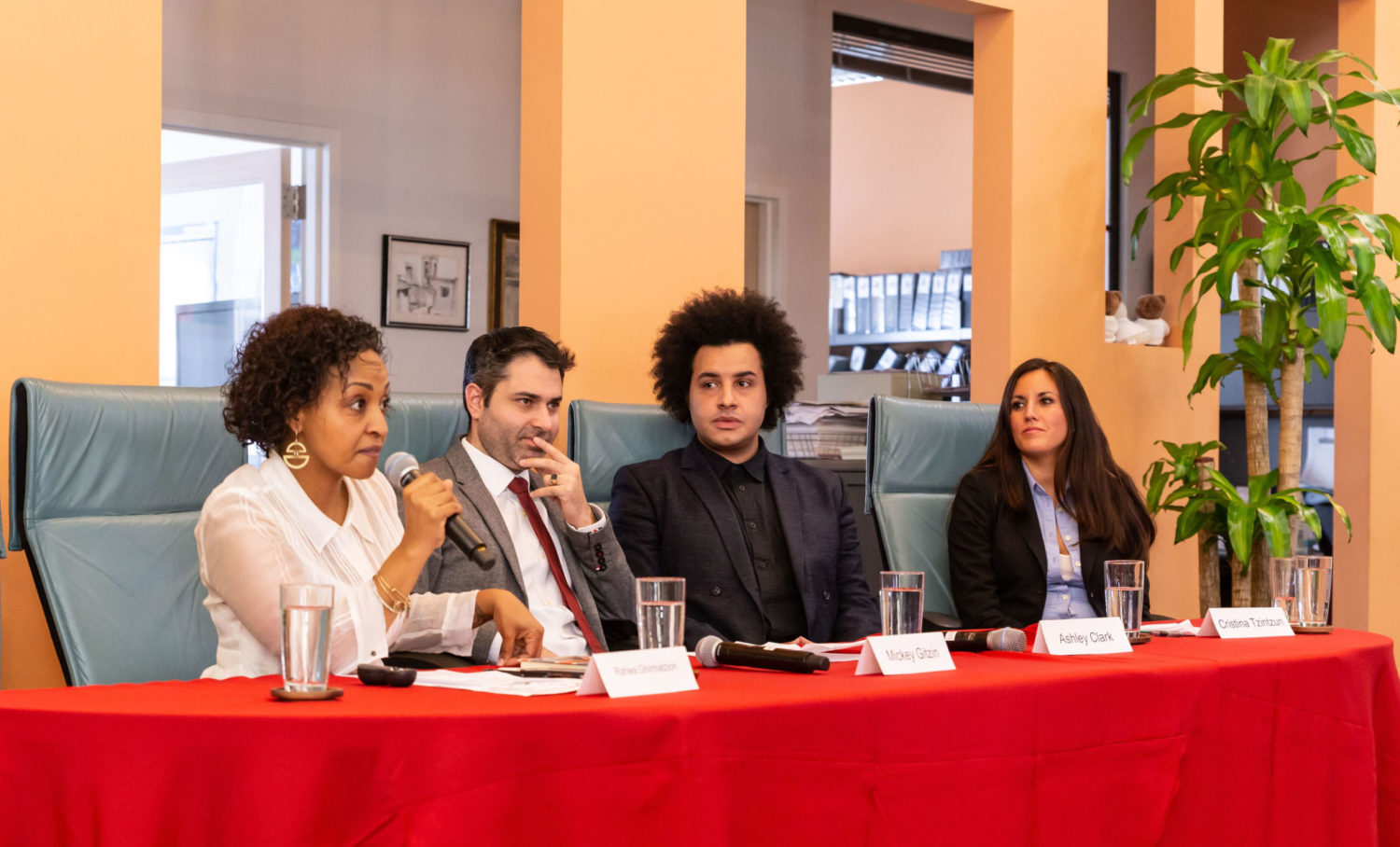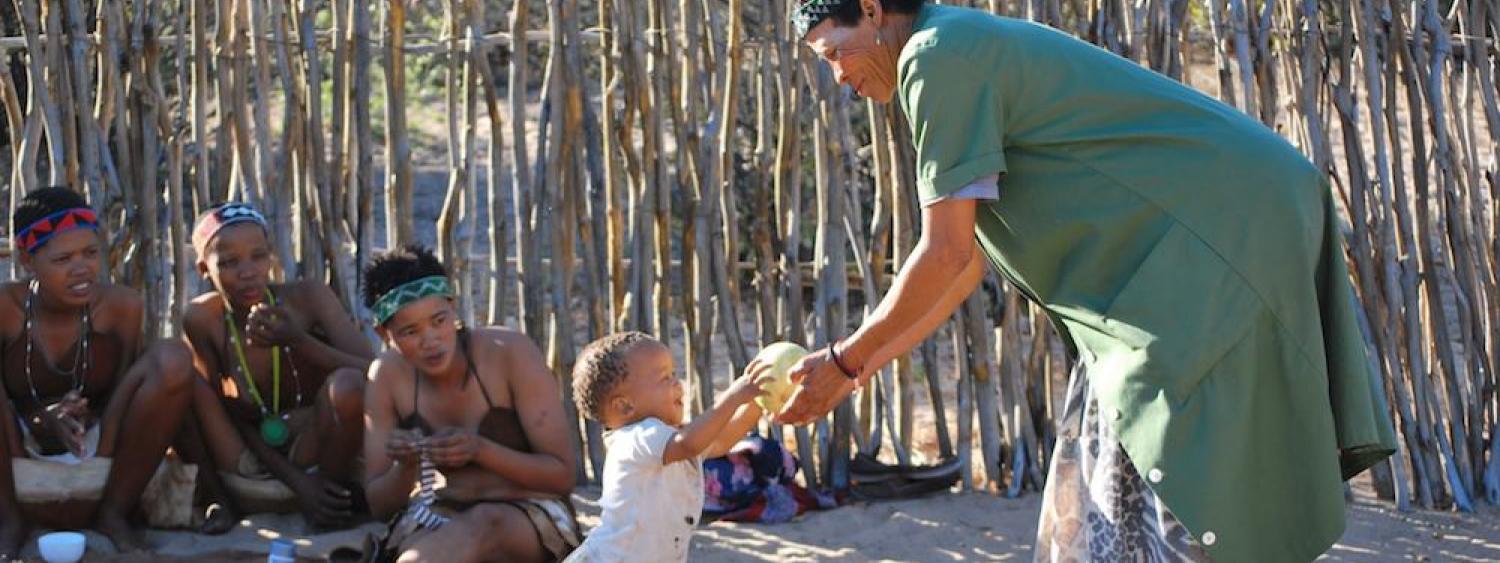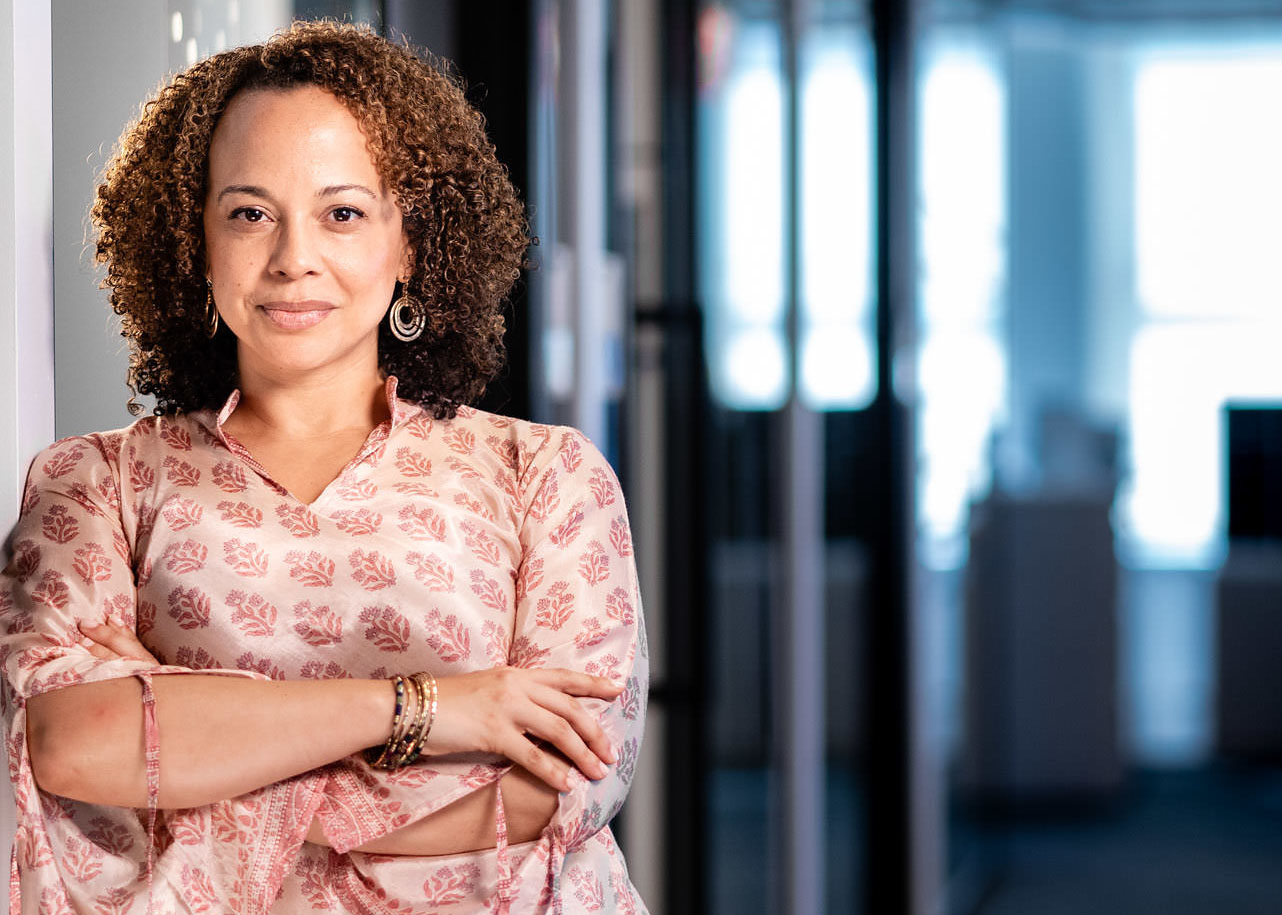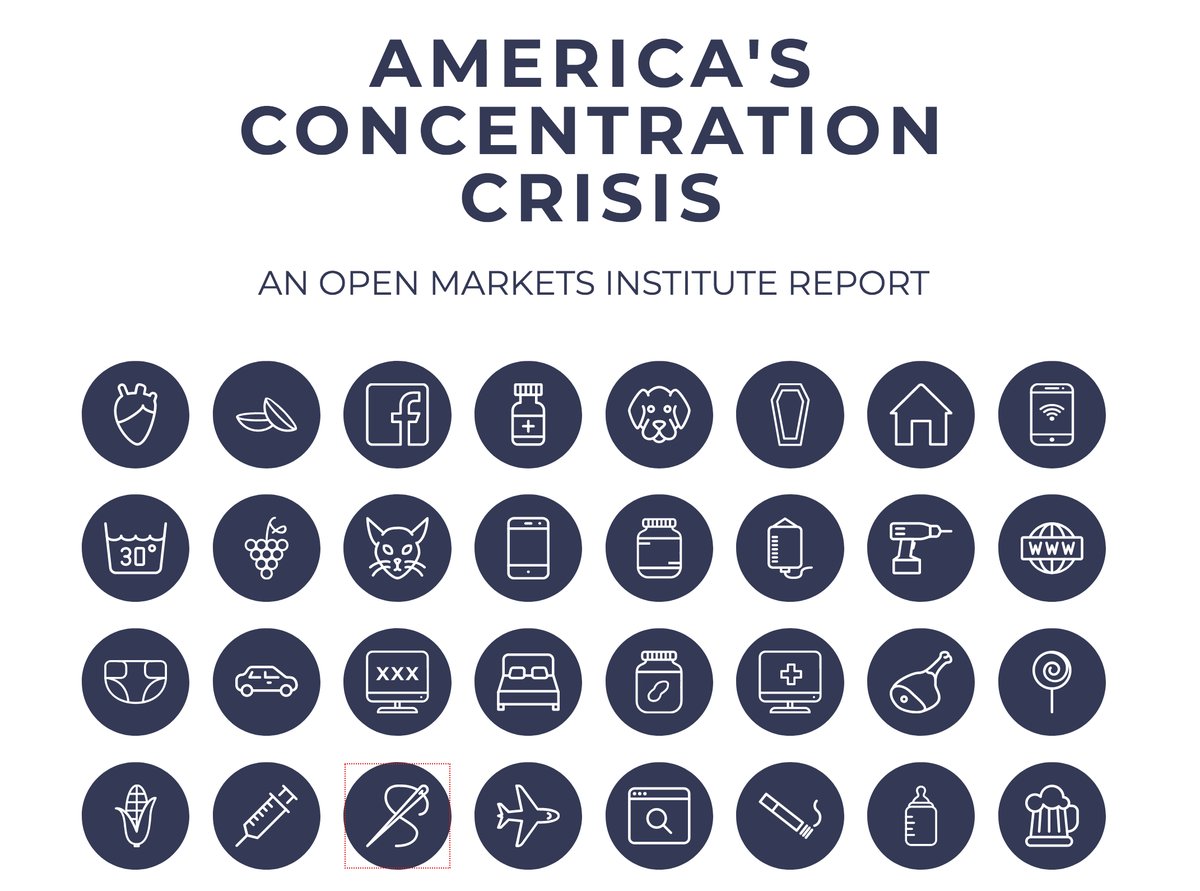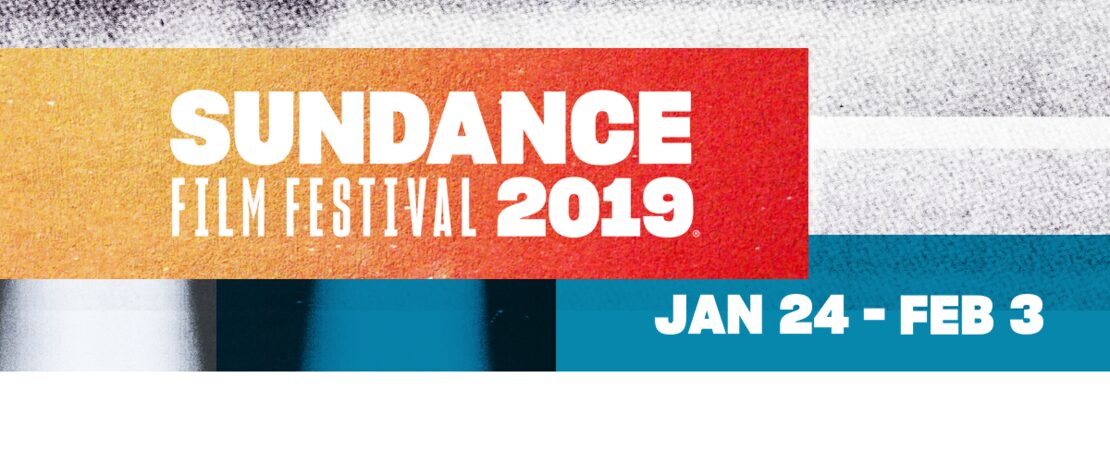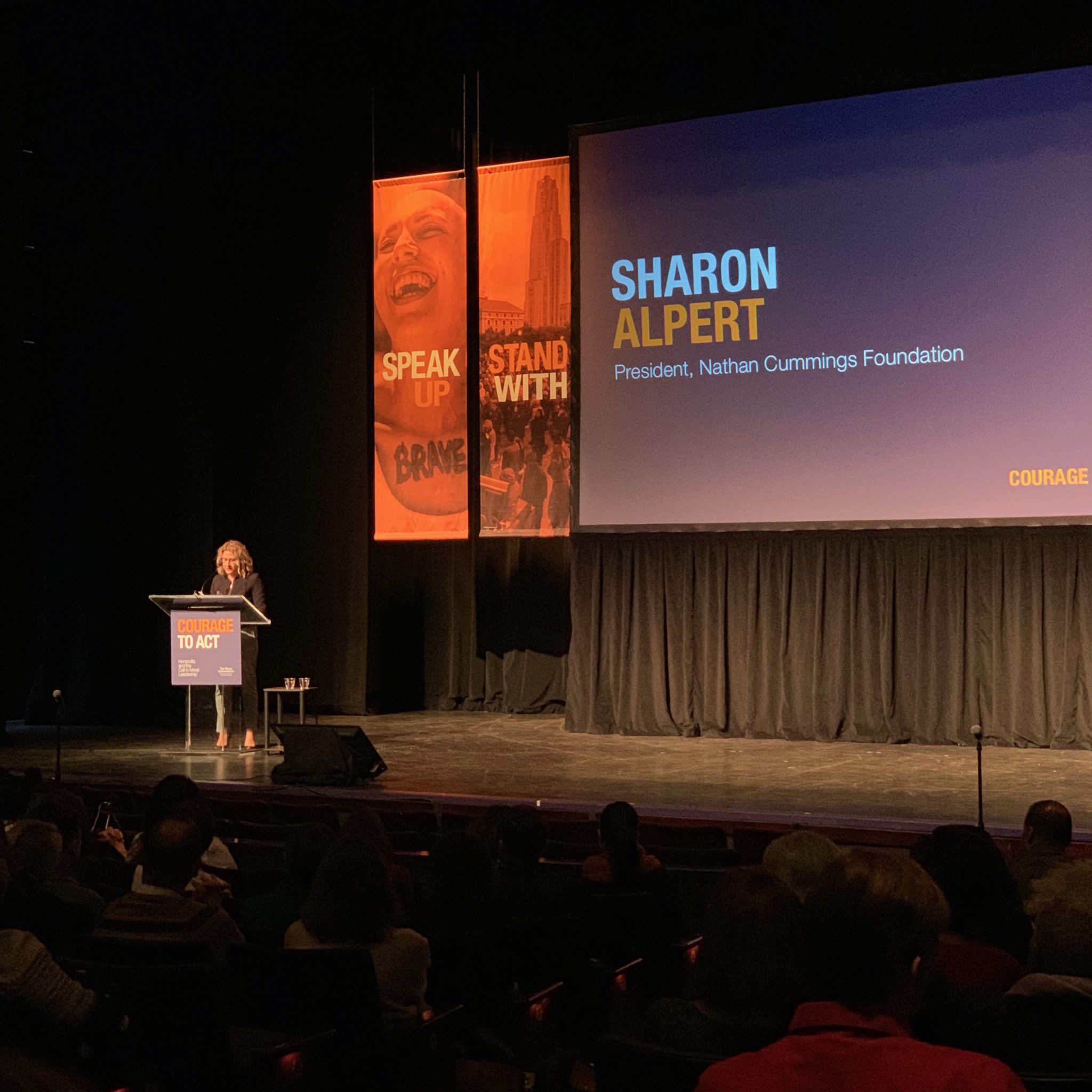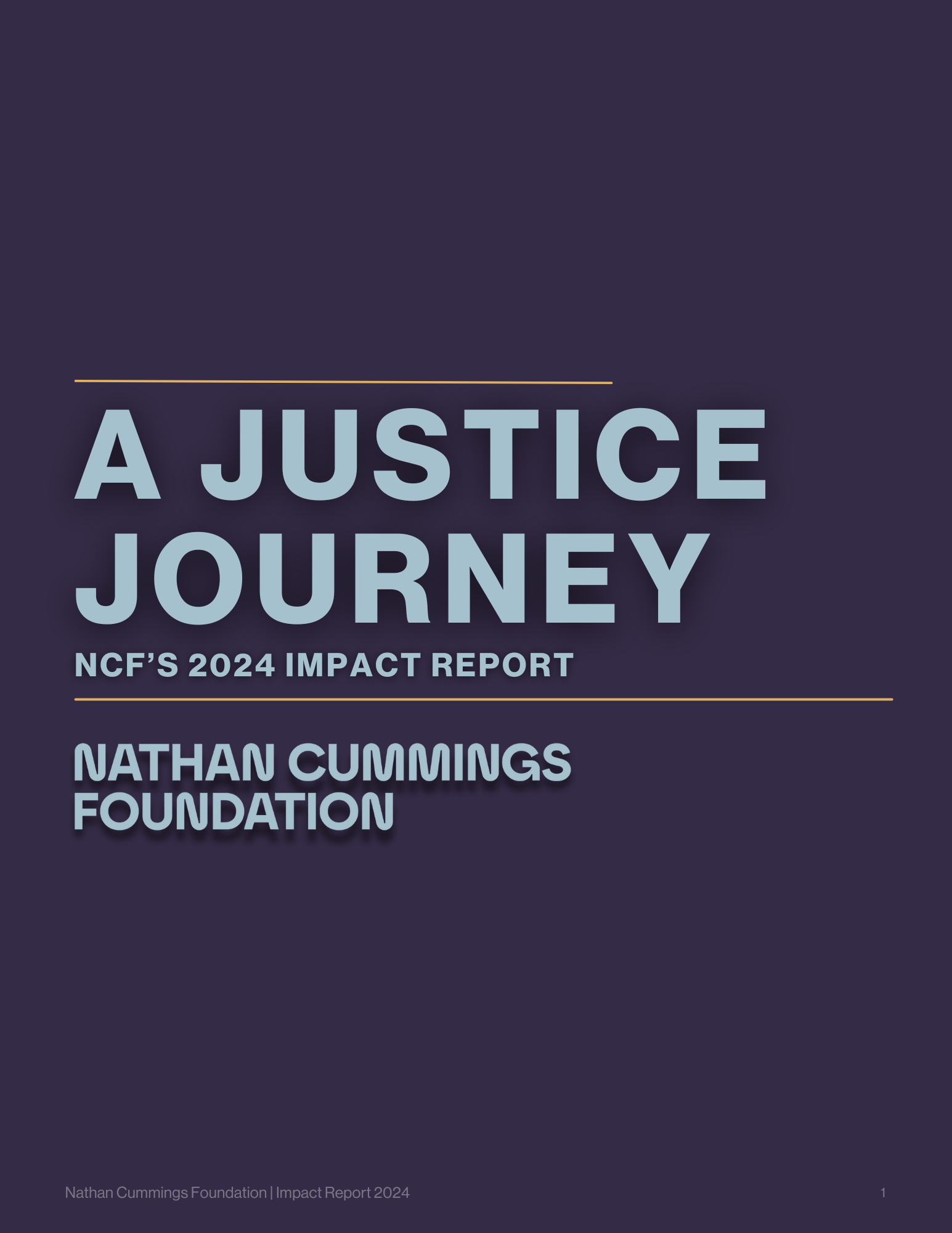Good morning. My name is Sharon Alpert, and I’m the president and CEO of the Nathan Cummings Foundation. Thank you to Dana Lanza and the entire Confluence team. It’s truly been a pleasure and an inspiration to be here in this community with all of you these last few days.
It is hard to believe that just one year ago, here at Confluence, we announced our Board’s unanimous decision to align 100 percent of our nearly half-billion-dollar endowment to advance our mission, which in our case is to build a more just, vibrant, sustainable, and democratic society. We recognized that the problems we are working on – the climate crisis and growing inequality – will not be solved by grantmaking alone. Capital markets have to change to drive sustainable and inclusive growth that will create long-term value for people, the planet, and the economy.
We made the decision because we believe that philanthropy should be using all of our resources to drive change. And this has led us to think deeply about our business model. We are in the business of changemaking, not just grantmaking, and we have a much wider set of tools to do that.
We are so grateful for the support and interest we’ve received from many of you in this room. I am more convinced than ever that this was the right decision and that we need more capital to move in this direction. That doesn’t mean it’s easy.
So, as many of you have asked, why hasn’t more capital moved? What will it take?
With you, we are part of a growing movement that is questioning and challenging some so-called “truths” we have been told about our capital markets and the potential of impact investing.
These create real barriers to progress.
Powerful forces continue to sell these “truths” – but we don’t have to buy them.
Today I want to focus on three of these “truths” and what we’re learning and doing about them as part of our commitment to 100-percent alignment.
- Businesses exist primarily to maximize profit for their shareholders.
- It is a “cost” for businesses to consider the long-term sustainability of their practices, from an environmental, social, or governance standpoint.
- Investing in line with your values or investing to do good creates financial risk or is at odds with your fiduciary role.
We reject the premise of shareholder primacy – that the highest calling of our business leaders is to generate a profit at nearly any cost, and all other considerations, for the environment, for workers, for society, are secondary, if they are considered at all.
Corporations in this country were initially envisioned as existing to serve the needs of society.
Despite being deemed people by the Supreme Court, we know that corporations do not exist in the absence of a set of rules that we, the actual people, have created.
Their right to exist is not fundamental or a given, but something we permit.
We also reject the so-called “truth” that low prices, and no other public interest concerns, are – and have long been – the only thing that matters. The consumer welfare standard, which is the driving force behind current interpretations of antitrust law, is a relatively new way of thinking. It rose to dominance beginning in the late 1970s. In the past, this country has explicitly recognized that corporate concentration and monopoly power were bad things. They not only harmed competition and innovation, small businesses and workers, but also endangered our very democracy.
Their broad-based acceptance has played no small part in allowing vast amounts of wealth and power to accrue to a narrow slice of economic and political elites while ordinary people face stagnating wages and a climate crisis.
If we really want to change the status quo, like we say we’re here to do, we need to stop “buying” these ways of thinking about how markets and corporations should be governed and who should benefit from us sitting on the sidelines and not using our power to change the rules of the game.
We reject this “playbook” because we know the results it produces.
As the panel on democratizing finance discussed yesterday, the inequality we have in the system was not fated to be. It was a consequence of deliberate decisions that were made along the way.
Women launched more than 1,800 new businesses every day in the U.S., according to the 2018 State of Women-Owned Businesses Report, commissioned by American Express.
And, over the past decade, eight out of 10 were women of color. (In fact, women-owned businesses now employ more than 9 million people and generate $1.8 trillion in annual revenue.)
And yet, diverse founders receive a tiny fraction of venture capital. All-women teams received just $1.9 billion of the $85 billion total invested by venture capitalists last year. That’s equal to about 2.2 percent. Meanwhile, all-male teams received about $66.9 billion—roughly 79 percent.
My fellow economists call this a market inefficiency, and estimates say that it costs us 9 million jobs and $300 billion in revenue each year.
Questioning the “playbook” has led us to redeploy capital to more aligned funds.
We are now asking for diversity and inclusion metrics from our OCIO for all our investments. Right now, more than 20 percent of our investment funds are owned by women or people of color. That compares well to an industry average of 3 to 9 percent, but still leaves much room for improvement.
We believe that, by supporting the next generation of diverse fund managers, we can both restore capital to underserved communities and participate in exciting new opportunities that traditional capital markets have overlooked.
In the last year, we moved another 40 million to aligned investments.
Let me give you an example.
Through our partnership with Precursor Ventures, we invested in Goodr, a food waste management company that uses innovative technology and works with logistics groups to pick up surplus edible food and get it to folks who need it.
Seventy-two billion pounds of edible food is wasted each year, which is a significant contributor to environmental damage and carbon emissions at every stage from production to landfill. More than 42 million people in the U.S. face food insecurity each day.
And, just as importantly, Precursor is led by people of color, and Goodr is owned by a woman of color.
Goodr is just one example of what’s possible when an entrepreneur integrates social good into her business strategy.
We do not think it is a “cost” for businesses to consider the materiality of environmental, social, or governance issues.
A recent meta-study (a study of over 2,000 other studies!) found a positive correlation between ESG and financial performance in 60 percent of the studies they examined.
McKinsey has shown that companies with diverse leadership teams are 33 percent more likely to outperform their peers.
However, there are significant costs involved in ignoring these issues.
One need only to think of examples like the recent bankruptcy of PG&E, which Forbes and The Wall Street Journal both noted was the first climate change bankruptcy we’ve seen, but almost certainly not the last.
Last night we heard Amy Goodman recount her experience at Standing Rock, lifting up the power of people we saw unleashed as a result of the unprecedented organizing by tribal communities and indigenous leaders, some of whom we are lucky to have in the room today. I have to give a shout out to one of our partners, Carla Fredericks and the First Peoples Investment Engagement Program, where Chairman Dave Archimbault is now a fellow.
They recently published a study about ETP, the company that built the Dakota Access Pipeline. Its stock declined in value by almost 20 percent from 2016 to 2018, whereas the S&P 500 increased in value by nearly 35 percent. The study also found that costs incurred by ETP and other firms with ownership stake in DAPL for the entire project amounted to at least $7.5 billion—double the original projected cost of $3.2 billion. Not accounting for social risks has material financial consequences, and it certainly did for the investors in ETP.
Looking at our investments through an ESG lens doesn’t jeopardize our fiduciary role; it strengthens it.
And that brings me to my last point, which is really a call to action for everyone in this room. It is our responsibility to use our power as investors to change corporate behavior – a tool that is still vastly underutilized in philanthropy and now under threat from groups like the Main Street Investors Coalition who certainly don’t underestimate its potential.
The Nathan Cummings Foundation has filed more than two hundred shareholder proposals over the last decade, alongside leaders like Walden Asset Management, Interfaith Center on Corporate Responsibility, and As You Sow. We are calling attention to problematic practices and ultimately changing behavior on issues ranging from board diversity, disclosure of political spending by energy companies lobbying against climate policies, to hate speech, and workers’ rights.
Prompted in part by our engagements focused on mass incarceration, led by our partners at ICCR – JP Morgan, just this week announced that it will no longer finance private prisons and immigrant detention centers.
Also prompted partly by our engagement, Southern Company, one of the largest GHG emitters in the U.S., has established a goal of low-to-no emissions by 2050. In partnership with our grantee, the Climate Majority Project, and other institutional investors, we’re working to push not just Southern, but all utilities, to link executive compensation to progress on GHG emissions reduction goals.
This year, we’re undertaking work to push 10 female-focused and brand dependent companies to exclude harassment and discrimination claims from binding arbitration.
Investors aren’t the only ones that recognize the power of shareholder engagement. We’re increasingly seeing workers turn to this strategy. In the private equity space, we’ve seen investors and workers combine forces to win concessions from Bain and KKR following the Toys “R” Us bankruptcy. Google employees partnered with ICCR member Zevin Asset Management on a shareholder proposal asking Alphabet, Google’s parent company, to tie executive compensation to progress on key social risks facing the company, including employee diversity and the displacement of local residents where the company buys real estate.
We think there’s tremendous potential in the power of combining worker pressure with investor pressure.
When we say use all of our resources towards our mission, this is a huge lever for us and one where we have seen measurable results in changing corporate behavior and influencing capital markets.
As we get ready to listen to Edgar and Anand, both of whom I know will have no problem challenging us to confront some hard truths and whom I am excited to hear, I will leave you with this:
- We can have a market that works for all of us, instead of just a few.
- We can have a playbook that serves the needs of the people, instead of powerful corporations.
- We can halt the climate crisis and create an inclusive clean economy that builds wealth for those who have been left out of the dirty one.
These are our truths, and with the full resources of our endowment, that is what we are buying.
Thank you.
Learn more about Confluence Philanthropy’s Annual Practitioners Gathering: http://www.confluencegathering.org
“The USEER 2019 US Energy Employment Report provides a unique window on the people who meet the nation’s energy needs, and identifies important trends and skill sets for the 21st Century energy workforce.
Energy Futures Initiative, a not-for-profit clean energy think tank led by former U.S. Secretary of Energy Ernest Moniz, and the National Association of State Energy Officials, which represents the 56 governor-designated State and Territory energy officials, teamed up to produce the 2018 USEER and are again producing this report.”
Visit https://www.usenergyjobs.org/ for more information.
*The Nathan Cummings Foundation provides support to the National Association of State Energy Officials to produce and disseminate the 2019 and 2020 U.S. Energy and Employment Report (USEER), which will provide data on the number of jobs supported by the utility industry, energy transmission and distribution systems, and evolving and established energy sectors.
“A new report [from our partner the Climate Majority Project] details the urgency of global decarbonization and the risks and opportunities for electric utilities and their investors while outlining the governance transformations needed for companies to achieve the net-zero target.
The UN Intergovernmental Panel on Climate Change (IPCC) concluded in October 2018 that we must achieve net-zero carbon emissions economy-wide by 2050 to have at least a 50% chance of limiting warming to 1.5˚C above pre-industrial levels. Its landmark report, Global Warming of 1.5˚C, shows that decarbonizing electricity is essential to limiting warming to 1.5˚C-2˚C.
Today, the electric power sector is one of the largest sources of U.S. carbon emissions, and that, instead of decreasing, U.S. power sector emissions increased in 2018. The failure of electric utilities to achieve net-zero carbon emissions by 2050 at the latest would pose material risks for both long-term investors and society at large. At the same time, carbon-free electrification of transportation and other sectors presents electric utilities with once-in-a-generation growth opportunities.
Net-Zero by 2050: Investor Risks and Opportunities in the context of Deep Decarbonization of Electricity Generation analyzes the twenty largest U.S. publicly traded electric power generators, which combined produce nearly 50 percent of the U.S. electric power sector’s CO2 emissions. Of the twenty, only one (Xcel Energy) has committed to a net-zero target. Seven have set long-term targets that are not yet in line with the net-zero objective, and the remaining twelve have not set any long-term targets at all. None of the companies can yet demonstrate that their capital expenditures are in line with achieving a net-zero target, and many have invested heavily in policy-related activities that oppose climate mitigation efforts.
The report recommends that electric utilities commit this year to net-zero carbon emissions by 2050 at the latest, and adopt four critical boardroom reforms to ensure that their investments, executive compensation, and policy influence are aligned to that target. Given the material risks to investors, the urgency of action, and the complexity of the electricity decarbonization transition required, the report presents a case for holding utility boards of directors accountable if they fail to adopt these reforms.”
Visit https://www.climatemajority.us/net-zero-report for more information.
The Institute for Jewish Spirituality (IJS) has created the Rachel Cowan Scholarship Fund to celebrate the legacy of Rabbi Rachel Cowan who passed away last year. The fund will focus on bringing more activists and underrepresented constituencies in the Jewish community into its programs and retreats.
At this critical moment in history, where division and hate are tearing at the fabric of our communities and endangering the possibility of multiracial democracy, activists and change-makers of all races and religions are using mindfulness and spiritual practices to cultivate an experience of deep connection, sustain their spirits and bring their best selves to advocacy for a just and equitable society.
Seeded in part through a $180,000 grant made by the Nathan Cummings Foundation (NCF) and individual donations made in Rabbi Cowan’s memory (including a bequest from Rachel herself), the fund will offer scholarships to IJS’s retreat-based programs, making them more accessible to young people, Jews of color, LGBTQ Jews, and activists. Additional scholarships will be available for IJS programs through 2022.
Honoring Rachel’s commitment to social justice and supported by the grant from NCF, IJS will also offer a special three-day retreat for twenty-five activists in 2019. This contemplative retreat will give activists the opportunity to pause, tend to their own souls, and see the deep connection between tikkun hanefesh (healing ourselves) and tikkun olam (healing the world). Participants will learn new tools of spiritual practice so that they may return to their work with renewed motivation, perspective, and resilience—hallmarks of Rachel Cowan’s legacy.
“NCF’s board, leadership, and staff are proud to celebrate Rachel’s transformative vision with this grant. In doing so, we are building on our legacy as a Foundation and bringing new energy to our commitment to the transformative potential of contemplative and spiritual practices for social change,” said Isaac Luria, Director of Voice, Creativity, and Culture at the Nathan Cummings Foundation.
“Today, we still see incredible potential in nurturing the spiritual and leadership capacities of the next generation of Jewish social justice activists,” continued Luria. “By improving the resilience and creativity of our leaders through spiritual and contemplative practice, we are growing the Jewish community’s contributions to the work of building a multiracial democracy where all may thrive, dismantling racial injustice and confronting antisemitism, and enlivening the soul of Jewish communities.”
“As a lifelong activist, Rachel saw the connection between inner and outer work,” said Rabbi Lisa Goldstein, Executive Director of the Institute for Jewish Spirituality. “She knew the transformative power of contemplative practice for herself, and what it could be for the world. This Fund will not only provide powerful learning opportunities for Jewish activists and other underrepresented Jews, but assist IJS in learning how to reach a broader community of spiritual seekers. This could not come at a better time for us, especially as the world cries out for a spiritual and moral evolution.”
Twenty years ago, Rabbi Rachel Cowan, then Jewish Life Program Officer at the Nathan Cummings Foundation, co-founded IJS out of a belief in contemplative practice and its ability to connect our inner experience to the work of healing and repairing the world. Acting upon NCF leadership’s challenge to help more Jews access deep Jewish spiritual wisdom, Rabbi Cowan gathered a small group of colleagues who worked together to create an intensive, practice-based model of Jewish spiritual learning and exploration. A similar model of consultation and conversation will be used to deepen knowledge of how contemplative practices can support Jewish activists in this moment.
This model, which began around a kitchen table and would grow to encompass hundreds of alumni around the world, became the Institute for Jewish Spirituality, now a global leader in teaching Jewish mindfulness and spiritual practices through retreats, community programs, and online learning. IJS teaches core practices such as Jewish mindfulness meditation, tikkun middot (the development of ethical character traits), prayer, and reflective Torah study.
Rachel was known as a visionary activist in the Jewish community: a beloved teacher, mentor, and advocate for social transformations through spiritual wisdom. She knew that while spiritual practice can happen anywhere and mindfulness work can begin at any level; she also believed deeply in the transformative nature of retreats and aspired to make the experience more accessible to a diverse audience.
Rabbi Rachel Cowan served as a Program Director for Jewish Life at the Nathan Cummings Foundation from 1990 to 2003 and as Executive Director of the Institute for Jewish Spirituality from 2004 to 2011. Rachel passed away in September 2018 following a battle with brain cancer.
For more information about bringing Jewish mindfulness practices into your life, the Rachel Cowan Scholarship Fund, or the Jewish Mindfulness Retreat for Social Activists, visit www.jewishspirituality.org/legacy.
For a collection of remembrances and reflections of Rachel from NCF board and staff, IJS, and her friends, colleagues, and partners click here.
As an extension of our announcement about the Rachel Cowan Scholarship Fund, we prepared a collection of reflections from the Nathan Cummings Foundation (NCF) board and staff, the Institute for Jewish Spirituality (IJS); and Rachel’s colleagues, friends, and partners on her many contributions to the Jewish community and its deep-rooted connection to social justice movements. She served as a Program Director for Jewish Life at NCF from 1990 to 2003 and as Executive Director of IJS from 2004 to 2011. Rachel passed away in August 2018 following a battle with brain cancer. We feel truly blessed to have had her with us for such a meaningful and significant part of our lives, and we are all better for having connected with her. May her memory be a blessing.
Ruth Cummings, Trustee, Board Chair, Nathan Cummings Foundation
Rachel changed Jewish life in America and in Israel and more close to home, among the family trustees at NCF. With other leaders who she identified through her work at NCF and joined in the field, she was a passionate and compassionate proponent for social transformations that reached diverse communities by tapping Jewish spiritual wisdom as a source for new thinking and practice. Her steadfastness, humility, acceptance and sense of humor kept us all on the path towards change for the betterment of all people. She was a prophet, teacher and healer. It was a privilege and honor to know her, and work with her, and we are all better for having connected with her. She will be missed. Her legacy will continue to light our way.
James Cummings, Trustee, Nathan Cummings Foundation
My heart is more open thanks to Rachel, my soul becomes more nourished when thinking about times we shared together. I felt elevated when spending time with her whether walking in Manhattan or in Moscow, learning in Jericho or in Jerusalem, sipping tea in her apartment, in a Bedouin tent or in Berdichev. Rachel leaves indelible openings to deeper, higher and more meaningful ways of interacting. She opened a door for me, bringing me to the open tent Judaism of Sarah and Abraham, accessible, expansive, loving, meaningful, infused with compassion and social justice. Bearing witness to Rachel’s personal growth from a heart-shattered, young widow into a powerful, sensitive, humble loving global tsunami of rabbinic possibility, many have participated, many more will continue to bear fruits from her wisdom. She is already deeply missed, fortunately her legacy continues to expand exponentially. She has brought each of us to a deeper understanding of love, compassion and service.
Sonia Cummings, Trustee, Nathan Cummings Foundation
Rachel leaves a strong mark on those who were privileged to know her at NCF. Personally, she contributed in shaping my perception and understanding of Israel, its complexities and its potential, and certainly impacted some of my engagement in Jewish Life. Rachel had this amazing curiosity and openness to all. She helped us be co-creators in so many areas of Jewish life, social justice, contemplative practice, in foreseeing the impact of environmental degradation and its potential resolves in Israel and the region. She studied and observed from all denominations to pave the way for greater impact and inclusivity, was attentive to all, guiding, advising, mentoring prospective grassroots or aspiring grantees. What a great leader! Her time at NCF for me was a very rich intellectual period when I was constantly stimulated by the amazing program she helped shape. Rachel was a teacher, builder, mentor, rabbi, always humble and caring about justice for all. It was a privilege to have known her and share some unique times. While it is indeed hard to believe she is gone, she leaves her mark in so many spheres that have had so many ripples in the Jewish world and beyond. I believe we continue to learn from her today and we can best honor her by sustaining her sense of respect, humility and inclusivity to make our world a better place. May she now rest in peace next to her beloved husband.
Sharon Alpert, President, CEO and Independent Trustee, Nathan Cummings Foundation
Rachel Cowan was visionary, inspiring, and soulful. She touched people deeply and believed in the power, and necessity, of individuals to change systems. Long before I became President of the Nathan Cummings Foundation, Rachel’s work to support new paths of spirituality and inter-faith relations at NCF had touched and shaped my life. I was in my early twenties when I discovered the Jew and the Lotus, a book that chronicled a historic meeting between the Dalai Lama and a small group of Jewish rabbis, mystics, and progressive thinkers who he invited to discuss the secrets to the spiritual survival of a people living in exile for generations. I was on my own journey exploring my Jewish identity & my spiritual connections to the work of social justice. I only learned during the CEO search process that it was because of NCF’s support that the book was written. For me, it was a sign.
When I became President of NCF, Rachel was one of the people I met with on my listening tour, to deepen my understanding of the impact of our past work and how that set the groundwork for what we needed to be doing now. She was a source of inspiration as I came to see NCF’s unique role as a Foundation rooted in the Jewish tradition of social justice that is willing to invest in the voices, creativity, and cultural leadership needed to build solidarity around race, ethnicity, and gender and confront racial and economic inequality and the climate crisis. She was incredibly generous with her time and her wisdom.
Rachel also took seriously the power and the privilege that we hold in philanthropy and the change in the world that is possible when we are willing to take risks. And she was not afraid to both push and encourage people to be as bold as they could be. Not long after I started, and the new Administration began to challenge our values and our mission with actions like the Muslim ban, I got a note from her. She wrote to me “what a time to have stepped into your job! As Mordechai said to Esther, for this you have been born.” Those words will stick with me forever.
Isaac Luria, Director, Voice, Creativity and Culture, Nathan Cummings Foundation
As a child of an interfaith couple, a Jewish organizer committed to social justice, and a Jewish person involved in enlivening Jewish life through meditation, embodied practice, song, and other techniques, Rachel Cowan helped to pave the way for my own passions through her work with the Nathan Cummings Foundation and in other areas of her life. Many progressive Jews who came of age in the 2000s like me have benefited from Rachel’s vision, creativity, and leadership. We owe her an incredible debt. As we look forward to the future of Jewish life and Jewish-led efforts for social change, I know that Rachel’s imprint on our field will always be with us. I hope that her spirit continues to live on in the way we do the work of healing and justice in the decades to come. I am overflowing with gratitude for the life she lived and all that she offered our world. I will think of her often.
Larry Schwartz – Founding Board Chair, Institute for Jewish Spirituality
I am so grateful to have had Rachel as my teacher, colleague and friend. I first met Rachel 20 years ago in her apartment with a group of folks in the first lay cohort of what was to become the Institute for Jewish Spirituality. Rachel and Rabbi Nancy Flam opened up a new world to me and all the other participants. I realized I was a seeker and had always been. What a gift Rachel gave to me and all of us. She and Nancy created a safe space where we could go inside ourselves while opening ourselves to Jewish text, practices and meditation. We shared our insights, questions and yearnings together. My life was forever changed. Rachel with her wise, frank and heartfelt openness was both teacher and participant. A model I had never experienced before.
We became colleagues when she asked me to become the Chair of IJS several years later and she became the Executive Director. It was a wonderful partnership. I learned many things from Rachel throughout our years together. One was how Jewish spirituality could be instrumental in creating a more just world. The other was the importance of having women led organizations. The Institute would not be where it is today without Rachel’s, Nancy’s, Rabbi Sheila Weinberg’s and Rabbi Lisa Goldstein’s leadership. The Jewish spirituality that was taught, cultivated and explored was deeply influenced by these female leaders. The creating of safe spaces so that people could go deep inside themselves, the participant/teacher model, the teaching in pairs, the ability to cultivate openness and love were just some of the characteristics of that leadership.
Over the years Rachel and I became good friends. We shared life’s joys and sorrows with each other. One day when I was visiting Rachel after she became sick we were talking and the idea arose of having a meditation sit twice a week at her apartment as a way of supporting her and building a meditation group. The format evolved and we took our cues from Rachel. Once again, she became our participant/teacher. She was learning and teaching us how to die. It was not easy of course. She had her pain, fear and worry along with moments of triumph and joy. It was a roller coaster. She shared so much of herself with courage, vulnerability and humility. Over time she cultivated tremendous love that radiated from her to everyone who sat with her. I will never forget the experience of that love. Everyone felt it as soon as they entered the room. The love was still in that room after Rachel died where we continued to sit during the thirty days. The love and what she taught us remain in my and so many hearts today.
Rabbi Sheila Peltz Weinberg – Founding Faculty, Institute for Jewish Spirituality
Rachel believed in people. Rachel saw the spark of uniqueness in so many people and she encouraged us to go beyond our self-limiting ideas and let the spark grow. This is one of the ways I, and so many others remember Rachel. Some years ago, Rachel said to me, “Sheila, you need to teach other people how to do what you do. You need to teach other people to teach mindfulness in a Jewish idiom and context. It is really important.” My first response was doubt. “I don’t know how to do that.” I said. Rachel responded, “You will figure it out. You need to do it. It will be of value.” So started an ongoing project which turned into the Jewish Mindfulness Meditation Teacher Training Program of IJS. The fifth cohort will conclude this Summer, 2019, and there will be about 250 clergy and lay Jews trained as Jewish mindfulness teachers offering classes, leading groups and retreats throughout the country and abroad at synagogues, Jewish centers, agencies and even the White House (under Obama!). Rachel herself became a student in the third cohort. I was honored to be her mentor (and she did the homework)! She became a leader in this field in her 70’s.
Another time Rachel said to me, “Sheila, you should write a book.” “A book? Are you kidding? What would I write about?” “Really Sheila, you have so much to share. I am sure it would be wonderful.” The truth is, it wasn’t something I thought I should or could do but with Rachel’s insight, clarity and inspiration and my own willingness, through experience, to know I had better listen to her, I wrote two books. I am proud of them. I am so grateful to Rachel.
Rabbi Lisa Goldstein, Executive Director, Institute for Jewish Spirituality
Just after I had applied for the position of Executive Director at IJS, I ran into Rachel at a conference. “Are you seriously interested in the position?” she asked me eagerly. “That would be so wonderful!” The truth was that Rachel didn’t really know me very well at that point. We had been at a few IJS retreats together, but we had never had an in-depth one-on-one conversation. But from the very beginning she decided that I would be wonderful. And that was the story she stuck to. She told me over and over again, in public and in private over the course of seven years what a good job I was doing and how proud she was of having me as her successor. That was Rachel: assuming the best of the people around her and giving them the opportunity to shine.
I also remember speaking about prayer with her on many occasions. We shared with each other how easy it was for us both to find God in nature. She took me birding with her in Central Park and beamed when she shared photos and stories from her contemplative kayaking excursions in Alaska; I shared hiking photos and stories with her. She confessed that liturgical prayer sometimes left her dry. But as time went by, particularly as she deepened her practice during her final illness, the idea of prayer being transformative, that it could be a practice, grew new traction. She told me how she was coming to understand God as the love that is freely available, that connects all things, and how prayer is a way of aligning ourselves with that love. It opened new doors of connection and comfort for her and for me, as well.
Dorian Goldman, Founding Board Member, Institute for Jewish Spirituality
Rachel was a teacher and a mentor on my journey in life. She had a way of being in the world that not only loved it, but breathed it in. Whether she was looking at a bird, a wild flower, or another human being. She truly saw the face of G-d in another. And being with her opened me/others to experiencing the world in that way too.
As a friend she was always there for you. Willing to see you, where you were and support and hold you, through whatever transition or experience you were going through at the time.
Rachel was also a visionary, and a creator. If she felt something was needed in her life, she knew it was missing in the world for others as well. She then went about creating it. The Institute for Jewish Spirituality was just one of those many gifts she gave us.
As 20th century Jews were searching for a spiritual home, often flocking to Buddhism, she knew the Jewish tradition had a contemplative and deep spiritual component that had just been ‘left’ or ‘lost’ along the way. Again, she partnered with other visionaries, dug deep into the tradition, and made visible and accessible, a beautiful and meaningful contemplative Judaism which is speaking to and embracing so many Jewish seekers now, into the 21st century.
The full effect of the birth of this organization, I believe may not be fully known or realized for years/generations to come. Rachel’s life and spirit was a gift to all who knew her. But she was also a gift to so many more who will know ‘the work of her hands’, having never known her. I miss her in life, but her life’s work will carry on well beyond her days on earth.
Valerie Boucard, Program Associate, Nathan Cummings Foundation
I’m so sorry to learn about Rachel’s passing, she was a giant in the world. I’m quite sure she had no idea but she and her work had a profound impact on me when I was just starting out. On 9/11 in 2001 after the planes hit, several us were crowded in Annette’s (now Shelly’s) office, holding hands in shock. It was a chaotic day to say the least and at some point Rachel led us in a prayer, Annette sang a song, eventually we all left the office. Later that week I saw Rachel on PBS – wearing the clothes she had on on Tuesday – speaking with an Imam, a priest and a minister about how they could work together to foster peace in their congregations and communities in the face of anti-Muslim backlash and fear. Rachel was a person who didn’t go home in the midst of all that, with downtown on fire she walked straight to Bill Moyers studio to work towards peace in solidarity with other faith leaders. I am so grateful for her kindness, unshakable commitment and her courage, which have continued to inspire me to this day. She left an incredible legacy but she also quietly touched countless people along the way who are changed by her being in the world.
Shifra Bronznick, Social Change Strategist, NCF Consultant
Right now, when we are all thinking deeply about the ways in which power is used and abused, and of how to shift from a culture of “power over” to “power with,” I am reflecting on lessons learned from Rachel Cowan.
It has become a cliché of foundation professional life to say: “The problem is that when you are a foundation program officer, you are always automatically treated as the smartest person in the room – but that designation lasts only as long as your job.”
I had the honor of working with Rachel as a strategy partner, and I saw her work firsthand and up close. One of Rachel’s special qualities was that while she recognized that people might treat her well because they hoped that she would give their organization a grant, that never made her back away from treating people well in turn.
She did not feel compelled to erect boundaries between herself as a program officer that would separate her from her grantees. She housed them, counseled them, confided in them and was transparent in sharing her dreams, aspirations, challenges and frustrations – some of which ultimately became failed experiments, while others became lifechanging initiatives.
No matter what the result, the process was open hearted and open minded, truthful and tactful, as she joined with grantees in the humble pursuit of audacious goals. The loving kindness she showed her grantee partners was matched by the gentle and generous ways she turned down projects. As one of those folks told me, “the way Rachel said ‘no’ was better than the experience of many other yeses.” She listened deeply and made you feel understood and valued.
Much has been said about Rachel’s capacity for wholesale, large scale social change and about the wisdom she shared with hundreds of individuals whose lives were influenced by Rachel’s teachings. I will share here just one such story of the how she changed my intimate experience of the sacred.
When my 18-year-old son was going to China for a year to participate in an immersive bridge year program where he would live with a Chinese family who spoke no English, a year when I would not be allowed to see him, I was overwhelmed with anxiety. I called Rachel and asked for help. “I don’t want to send Coby off for the year filled with this kind of fear, which I know he will feel even if I try to cover it up.”
She came over to my apartment a few hours later with a mindfulness book, a tape and a clear set of instructions about how I might meditate for ten minutes each morning. While I am still a delinquent meditator, after our conversation, inspired by Rachel, I sat down and had a heart to heart talk with God. And, in focusing deeply, I literally felt God’s presence in my life and watched in awe as God lifted my anxieties off my soul.
This soul shifting work is what engaged Rachel at the Nathan Cummings Foundation, at the Institute for Jewish Spirituality and it her life. It was what fueled her lifelong commitment to social justice which was inseparable from her enduring belief that each one of us could make a difference in our own lives and in the lives of others. This faith was the source of her power and an essential resource for people, leaders, organizations, networks and movements.
David Neil, former Program Assistant, Jewish Life & Values
Working for Rachel Cowan at the Nathan Cummings Foundation was an honor. Rachel was so smart, a visionary with a calming presence. She was always positive and inclusive. Her smile was contagious, as was her laughter. And she had so much empathy! Everyone wanted to connect with Rachel because of her warmth. So much so that at times I was unsure if I was a foundation program assistant or a bed and breakfast manager of her Upper West Side apartment for thought leaders and social change agents. Rachel and I had a lot of fun working together. While I was thirty-five years her junior, we formed a special bond that transcended time and space. I will always cherish my memories of Rachel, especially her officiating my wedding in 2004 and the many thought provoking conversations we had over an 18 year friendship. Rachel was the coolest. I miss her greatly, but am forever grateful to have been influenced by her teachings and love…
Rabbi Jennie Rosenn, former Program Director – Jewish Live & Values
I was blessed to have Rachel as a colleague, mentor, and friend. Much has been written (and will be written) about Rachel’s unusual and powerful life, the unbelievable number of people whose lives she touched, and the impact she had through her work. She also was perhaps the most beloved person I have ever known. Rachel is someone who had a tremendous impact on the world and loved widely and deeply in ways that were felt by virtually everyone who had the privilege of knowing her. It sounds so simple. But honestly some people have impact on the larger world at the scale that Rachel did, and some people approach everything they do and experience with genuine love and kindness and make the people they encounter feel loved. But, in my experience, few people are able to do both at the scale that Rachel did. There are many things to learn from Rachel, but for me this lies at the core. I marvel at how she did this with grace and vision, humility and heart. When Rachel approached me about applying to succeed her at the Nathan Cummings Foundation, I was both honored and appropriately intimidated. How in the world does one follow Rachel Cowan?! In fact, the role and the Foundation were so associated in the Jewish community with Rachel that it was not unusual for her to be referred to mistakenly as Rachel Cummings! She loved the Foundation — the Board, the family, the staff, the grantees, and the partners. Yet, Rachel modeled exquisitely how to transition a role to the next generation. Over multiple meals, after I was hired, she shared generously the ins and outs of her experience and insights. At one dinner I remember her drawing a family tree on the back of a napkin, explaining to me the web of relationships and who cared most about which issues. She shared with me her hopes for various organizations and initiatives. Then she did the most remarkable thing. She took a step back, empowered me to carry the work forward, and made clear that she understood that might include some new directions. She did not only give me her blessing, she offered her support both privately and publicly. I know from subsequent conversations and writing that leaving the Foundation was personally challenging. But like everything Rachel did, she did it with generosity, integrity, and honesty. So much of my work at Cummings was built upon Rachel’s work. The last time I sat with Rachel she was really no longer verbal. As I shared with her how much she has meant in my life and reflected on her impact through Cummings, she spoke. She looked up and said “We did a lot of work.” Indeed, Rachel’s work has changed the Jewish communal landscape in so many ways, and I am immensely grateful to have had the opportunity, like so many of us, to be touched by it and build upon it. At her request, Rachel’s memorial service ended with everyone singing We Shall Overcome. Indeed, we can honor her by carrying on her work so that we may, one day, overcome.
Finally, beyond our work, Rachel and I shared a friendship. We enjoyed each other’s families and relished our shared identity as Yankee Jews with New England sensibilities. (Needless to say, Rachel’s roots go back many more generations!) We even went to the same rustic, all girls Quaker camp in Vermont, coming of age in the woods – in the ‘50s and ‘70s respectively – with politics, feminism, and folk music! It was such a joy over the years to sit together to share our lives and work, our hopes and fears. I am grateful to have been one of the many people who was welcomed into her beautiful home for interesting conversation, shabbat meals, and meditation. It is hard to imagine the world without Rachel. Her life has been a blessing to so many of us. In fact, somehow, it feels wrong to say may her memory will be a blessing, for it is her life that will continue to be a blessing — her incredible impact in so many spheres and her open-hearted love. Thank you, Rachel, for your mentorship, partnership, friendship and love. I miss you already.
Karen Garrett, former Senior Program Assistant and Exhibit Coordinator – Arts & Culture
I had the privilege of meeting Rabbi Rachel Cowan in 2010, when I joined the staff of the National Cummings Foundation. At that time, there were three female program directors: Claudine K. Brown – Arts and Culture; Andrea Kidd – Health; and Rachel Cowan – Jewish Life and Values. Collectively these women exemplified characteristics that included — but not limited to–strength, wisdom, mentorship, strategic thinking, passion, as well as expertise and deep knowledge within their respective fields.
Rachel was always willing to make time for open discussion and reflective practice. I specifically recall those precious lunch breaks when she would share how meditative and reflective practice could be used while eating, walking, and any other number of activities. The way in which she walked us through the process made it accessible and possible, even for those of us who were skeptics.
After the 911 tragedy, Rachel was on public television with leaders from other faiths engaged in a dialogue about how we could cope and find a way forward. It happened to be one of the limited number of television stations broadcasting in the days immediately following the event, and I found comfort in her presence and words of wisdom.
Elizabeth Greenstein, former Program Assistant, Jewish Life & Values
I have loads of memories from my four years of working with Rachel – mostly fun, a few exasperating (and generally involving her exceedingly long call log!), the majority meaningful. In thinking of her passing, I realize that so many of my friends and so many of the organizations and issues that I care about I was introduced to by Rachel. Social justice on college campuses, religious pluralism and environmental protection in Israel, spirituality and mindfulness everywhere, healing and hospital chaplaincy, intermarriage, next generation Jewish leadership, even bird-watching and which was the best jewelry shop in Jerusalem – her interests were broad, and her enthusiasm was infectious. I learned so much from her, and keep drawing on those lessons all these years later. One specific memory: In addition to everything else that has been said and written about her, Rachel was also a very fun and funny person. When I left Nathan Cummings, she gave me this photo, with a message on the back that read (in part), “I hope you get to work with someone else as attractive”! Zichrona l’vracha – may her memory be as a blessing.
Daniel Sokatch, Chief Executive Officer, New Israel Fund
Rabbi Rachel Cowan was the gentlest, fiercest, and most generous advocate for justice I ever met. If those qualities seem somewhat oxymoronic to you, then you never had the pleasure, honor, and profound good fortune of knowing Rachel. As the visionary Jewish Life grants officer of the Nathan Cummings Foundation, she helped transform the American Jewish community, nurturing and growing today’s vibrant and thriving Jewish social justice movement. And she helped transform the landscape in Israel, too, building a partnership between NCF and the New Israel Fund that enabled tens of thousands of Israelis to advocate, educate, and organize for a better Israel. And even as she was doing all of this, Rachel was pioneering the Jewish healing movement and, once she left NCF, leading the Institute for Jewish Spirituality. And while her impact was incredible, it is her kindness, wisdom, and keen strategic vision that I will miss the most. She was a dear friend and mentor to me, as she was to so many others. She was incredibly generous with her time and heart. I first met Rachel in 2000, shortly after I started as the founding executive director of the Progressive Jewish Alliance in Los Angeles (now a part of Bend the Arc). Rachel flew out to LA to meet with me and invited me to take a walk on the beach to talk about PJA. She asked me to apply for a grant and then patiently explained how to do that. We got the grant, and later that year, Rachel flew out to LA again for another walk and an invitation to apply for a second grant. What did I know? I sent in a grant proposal asking for the same amount. Rachel called me, and gently suggested that I might want to ask for a larger grant this time, which I did, and which we got. And so it was with Rachel; even as she did her job, she taught you how to do yours better. Suffice it to say, only Rachel could have convinced me, years later, to take the better part of a busy work week and go on a silent retreat for Jewish social justice activists. It was way out of my comfort zone, but that incredibly healing and restorative experience remains one of the highlights of my career. Rachel was the ultimate happy warrior, and more than anyone else I’ve ever known, it is her calm, cheerful, and inspirational example I most try to emulate. May her memory be a blessing, as was her life. And may 5779 be a year in which we rededicate ourselves to work for the values of kindness, justice, healing, and love that Rachel embodied.
Sharon Alpert, CEO, Nathan Cummings Foundation:
“Dr. King is remembered as a beacon of unity for the civil-rights movement. But at the time, he was radical in thought and action, controversial, and, for some, dangerous because he challenged the deep-rooted systems that gave power to economic inequality. That’s what we should remember this day because we need more of it.
In his final book, Where Do We Go from Here?, Dr. King said that eradicating poverty would not come from playing by the rules or investing in piecemeal solutions. Today, the wealth gap between the richest and poorest has never been greater. Of the world’s top 100 economies, 69 are corporations with more wealth than the gross domestic product of the majority of nations, giving them extraordinary power and influence.
So where does philanthropy go from here?
At the Nathan Cummings Foundation, we use all of our resources to support bold partners who are willing to take risks and get to the heart of the racial wealth gap.
We use our own power as an investor to hold corporations and the government accountable for actions that lead to too few black CEOs, too few women on boards of directors, stagnant wages and eroding worker protections, and too much income in the hands of too few people.
We back leaders whose prophetic voices beckon us to hold true to the values of democracy and justice that will ensure equality for all.”
Read more: Philanthropy.com.
Dear Partners:
As 2018 draws to a close, I am filled with hope. Despite headlines that offer a daily reminder that our democratic institutions and values are under attack, there is a rising tide of courageous leaders fighting voter suppression to achieve representation that reflects what our country actually looks like. Women of color running and winning in political races, from city council to the U.S. Congress, are at an all-time high. We see people from every walk of life, from students to faith leaders to restaurant workers, standing up and speaking out.
As a long-time democracy funder, we know these are extraordinary times. There is a struggle underway in America and around the world as a battle between opposing worldviews unfolds daily. On one side is an emerging nation of incredible diversity and vitality. On the other, a white nationalist social movement that preys on the fears and anxieties of white people, who believe that prosperity is a finite resource that can’t be shared; that their identities, their culture, and their rights are at risk.
At the root of this is a narrative—that imagines a brutal fight over limited resources and a growing belief that “for my people to win, other people have to lose.” It’s no wonder that a recent Democracy Project poll showed that 68 percent of Americans believe democracy is getting weaker, and this lack of confidence in democratic governments is a global phenomenon experienced in the U.S., Israel, and around the world.
With democracy under siege, its defenders are mobilizing at unprecedented levels. Our partners are calling out corruption, fighting for an end to unjust actions like separating families at the border, and putting forward visionary solutions like the Green New Deal.
As a social justice funder, we keep a close eye on the forces undermining democracy like the unchecked concentration of corporations. Our partners, like Open Markets Institute, are standing up to monopoly power and the damaging impacts it is having on everything from growing inequality, stagnating wages, and worker rights to the decline of journalism, spread of hate speech and disinformation, and the rise of political division. It is clear from Facebook’s recent efforts to publicly smear critics like Color Of Change and Freedom from Facebook, which Open Markets co-founded, that they are surfacing issues that giant companies like Google and Facebook would rather have go unnoticed. Our partners are rejecting the story that these monopolies are the only way to have prosperity when, in fact, it is these monopolies that keep prosperity from so many.
Other forces threaten to undermine democracy. At our November board meeting, we reviewed the disturbing history of white supremacy and how it strategically works to weaken black and brown power. Our board member Tricia Rose, chancellor’s professor of Africana studies and the director of the Center for the Study of Race and Ethnicity in America at Brown University, offered a close reading of Lee Atwater’s infamous 1981 “Southern Strategy” interview. She reminded us that white supremacist ideologies are deeply rooted narratives in our history and our systems, and are at the very heart of our nation’s power struggle. President Trump is not the exception, but rather an extension of a 50-year project to make the fabric of American culture rife with racial animus and to weaponize our political systems against marginalized communities to deny their political participation, and to criminalize and oppress them. We must challenge these narratives.
 Tricia Rose guides a close reading of Lee Atwater’s infamous ‘Southern Strategy’ interview.
Tricia Rose guides a close reading of Lee Atwater’s infamous ‘Southern Strategy’ interview.
If we want to change the world, we need to change the narrative. Narratives are how we make sense of the world. They give us meaning. They shape the conversations, show the contours of what is possible and focus our attention, dictating which problems are addressed and which solutions are on the table for consideration.
To make meaningful progress, we have to be clear about what we are up against, as well as have the courage to critique both outside forces and problematic impulses in our own communities to cultivate critical thinking. We need to join forces at unprecedented levels — deepening our practice of radical solidarity to stand strong against the forces of oppression. And, we need a narrative, a compelling story about our values that gives us motivation. This is how we make democracy durable.
NCF has long believed that narrative and culture change precede policy change, and we focused on the concept and power of narrative change at our recent board meeting. We heard from our partners and leaders in the field, who are pushing back against nationalist narratives here and in Israel, about how culture can be used as a tool for positive narrative change. Ashley Clark, a film programmer at the Brooklyn Academy of Music (BAM), added to our understanding of the damaging narratives we are trying to transform through an analysis of one of the first blockbuster films The Birth of a Nation (1915), which created the blueprint for stereotypes about black people that are still in circulation 100 years later. He emphasized the need for critics, curators, and the people who invest in media to ensure that contemporary discourse around image-making is informed by history and done with rigor to hold those in power accountable and challenge the seductive power of problematic pop culture.
We explored how celebrating the building of black and brown power is a direct challenge to toxic narratives. Cristina Tzintzún, executive director of Jolt, explained how the organization builds the political power and influence of young Latinas and Latinos in Texas by engaging them through a culture they know and love, making the milestone of quinceañeras not only coming-of-age rituals but also a sign of coming into their political strength. The stunning images of young women in their quinceañera dresses protesting on the steps of the Texas Capitol and making their voices heard epitomizes the power of narrative, both verbal and visual.
 Rahwa Ghirmatzion (from left), Mickey Gitzen, Ashley Clark, and Cristina Tzintzun discuss how culture can be used as a tool for positive narrative change.
Rahwa Ghirmatzion (from left), Mickey Gitzen, Ashley Clark, and Cristina Tzintzun discuss how culture can be used as a tool for positive narrative change.
We had a moving and provocative conversation with our board about the white nationalist terror attack in Pittsburgh and the threat that the growing white nationalist movement is posing to building a multiracial democracy. We heard from partners who are exposing how anti-Semitism and racism are intertwined in these ideologies and talked about the necessity of building deeper solidarity across targeted communities.
Executive Director of the Western States Center Eric Ward emphasized the importance of leaders of all backgrounds drawing clear, moral barriers against anti-Semitism, racism, and all forms of oppression. Jonathan Greenblatt, CEO of the Anti-Defamation League, which has a legacy in the Jewish community of responding to hate and violence against all people, discussed the rise of hate crimes. Dove Kent, former executive director for Jews for Racial & Economic Justice, who was on the ground in Pittsburgh supporting the community to mourn, heal, and organize a collective response, spoke about the need for an interlocking strategy of challenging white nationalism’s targeting of Jewish Americans and challenging the way some members of the Jewish community hold up white supremacy.
Another speaker was Tarso Ramos, executive director of Political Research Associates, a research and training organization that has studied white nationalist social movements for decades and offers trainings and convenings to progressive activists to deepen our movement’s collective analysis. All of these approaches came together to powerfully remind us that anti-Semitism is a very real problem, and, for many, it was an awakening to the ways it intersects with other forms of oppression and how we can fight back together.
 Jonathan Greenblatt (from left), Eric Ward, Dove Kent, and Tarso Ramos joined us to discuss the growing threat of white nationalism and their work to fight all forms of oppression.
Jonathan Greenblatt (from left), Eric Ward, Dove Kent, and Tarso Ramos joined us to discuss the growing threat of white nationalism and their work to fight all forms of oppression.
We are using our moral voice to stand up to damaging narratives and to seed ones that unify rather than divide. I recently spoke in Pittsburgh at the Heinz Endowments’ “Nonprofits and the Call to Moral Leadership: The Courage to Act” gathering, where I talked about how we can show up and stand up for one another, in radical solidarity. As I said then, “To build a just and democratic society, we have to take the long view. We don’t jump from election cycle to election cycle or headline to headline. We fund efforts to shape narratives, not just react to them. We invest in the poets and prophets, faith leaders, cultural strategists and artists who shape how we view the world, who articulate our shared values and humanity, and who can change hearts and minds.”
You can see this in action by reviewing our recently approved grants. In November, we approved 51 grants, totaling $16 million in multiyear funding for this year and next across our integrated framework. You can learn more at our new website about what our partners will do to ignite social movements and push narrative evolution at the intersection of faith, politics, culture, and justice.
At NCF, we are committed to use all our tools to support the work of our partners, including our voice to stand up for our values and our influence to bring more resources to the field. This new website will give us a more powerful way to share what we are learning and highlight the impact of our partners’ work. We want to be clear about the issues we’re advancing, the people who are leading this work, and the future we’re building together.
We also made important decisions about the future of our work in Israel. Today, Israel is facing many of the same threats to democracy we see here. For decades, our work there has advanced progressive values of religious pluralism, nurtured social and economic equality, strengthened the environmental field, built prospects for peace and shared society, and advanced women’s leadership. Our board affirmed that defending democracy in Israel is central to our identity as a progressive funder, and we see the potential for deeper integration and shared learning between our work in the U.S. and in Israel. We’ll have more details about how we’ll move forward with our work there early in 2019.
Our board’s resolve and alignment across generations has never been stronger. At our most recent meeting, we voted to elect our first fourth-generation leader, Jaimie Mayer, to be our next chair of the board beginning in April. Jaimie will succeed Ruth Cummings, who has led the board for the last three years and has made significant contributions to our work. Under Ruth’s leadership, the board approved the integrated framework for our program focus areas and acted to align 100 percent of NCF’s endowment with our mission for greater impact in using all of the tools at our disposal. Multigenerational leadership — as reflected by passing the torch from Ruth to Jaimie — is recognized as one of our greatest assets, particularly as we know that the work we fund takes time and as we balance the urgency of now with the long-term changes our partners are fighting for.
As we head into 2019, the struggle continues. Now more than ever, funders need to show up – with every resource available – to protect democracy. We need to use all of our voices to drown out the damaging and destructive narratives, and turn up the volume on the stories that will show us the way forward. Rest assured that we at NCF are standing right beside you.
On behalf of everyone at NCF, I extend our deepest appreciation for the important work you do every single day. And in this holiday season, as the new year approaches, we hope you each find time for rest, reflection, joy, and rejuvenation with the ones you love and those we are fighting for.
With gratitude,

Sharon Alpert
President & CEO
Nathan Cummings Foundation
“The Rooted in Resilience Mapping Project is an attempt to capture one view of the significant and expanding body of work being done to integrate personal and collective transformation, spiritual practice, and healing, within frameworks for social change. The question of how communities can best equip and ready themselves for both the challenges they face today, and the looming threats of ecological and economic rupture in the years ahead is a serious one that we are discovering requires our attention and our resources.
By providing this view of how individuals, organizations and entire movements are imagining and drawing on lineages of spiritual sustainability or holistic care to resist well and achieve freedom and justice for all of us, Rooted in Resilience seeks to emphasize how important the work of transformation, spiritual engagement, and healing is, highlight the questions and challenges practitioners are themselves facing, and make the case for why and how we can invest in the roles and resources needed.
This project is made possible with support from the Nathan Cummings Foundation.”
Visit https://www.faithmattersnetwork.org/rootedinresilience for more information.
“The First Peoples Investment Engagement Program (FPIEP) case study, Social Cost and Material Loss, examines the numerous impacts attendant to the Dakota Access Pipeline (DAPL) project to highlight the costs that companies, financial institutions, investors and communities linked to the project faced by not respecting the human rights of indigenous peoples. This case study thus serves as a basis for the assertion that social risk resulting from the absence of adequate human rights protections can have material impacts.”
Visit https://www.colorado.edu/project/fpiep/ for more information.
NEW YORK – The Nathan Cummings Foundation (NCF) is pleased to announce that Leticia Peguero will join the Foundation as Vice President of Programs. Leticia brings more than 20 years of experience leading and managing programs and grantmaking at the intersections of social and racial justice and the arts. In her new role, she joins the Foundation’s leadership team as it revisits traditional structures and practices in philanthropy in support of greater impact and positive changemaking in communities.
As Vice President of Programs, she will develop strategies grounded in principles of social justice philanthropy that are nimble, responsive, and reflective of the integrated and complex nature of social change. She will be a critical partner to the CEO and the board in achieving NCF’s vision of a best-in-class social justice philanthropy that is integrated and intersectional in its approaches and fully aligned in its culture, operations, and systems.
In her current role as Executive Director of the Andrus Family Fund (AFF), she is at the forefront of the national conversation around youth justice reform and narrative change surrounding young people of color. Under her leadership, the AFF and the Surdna Foundation developed innovative tools and curricula to effectively engage next generation family philanthropists in meaningful conversations and experiences related to race, class, and privilege.
“In this moment, philanthropy needs bold, creative leaders like Leticia who are willing to push beyond the status quo and galvanize support around a vision of justice. Her leadership in building a field of next generation social justice philanthropy is a perfect complement to a multigenerational family foundation like ours, which is deeply rooted in social justice values,” said Sharon Alpert, President and CEO of the Foundation. “I can think of no better partner for us in further developing innovative program strategies, ensuring a strong culture of equity, learning and accountability that will increase our impact. We are absolutely thrilled to have her join our leadership team.”
Before joining AFF, Leticia was the Regional Vice President at the Posse Foundation, where she managed Posse sites in Los Angeles, Boston and New Orleans, in addition to establishing its newest location at the time in Houston, Texas. Prior to her role at Posse, Leticia spent five years as Deputy Director of the Local Funding Partnerships program, one of the hallmark programs of the Robert Wood Johnson Foundation, where she developed strategy and worked to identify and support innovative program models that serve vulnerable populations.
Outside of her professional role, Leticia works closely with a Latinx run arts organization, Areytos Performance Works, which fuses Afro-Caribbean dance forms with contemporary dance and exemplifies the power of the arts as a tool for advancing social justice, particularly for those whose voices have been dampened by oppression and structural racism.
“Now more than ever, leaders in philanthropy must embrace participatory practices that both speak to communities’ needs and build on the strengths of historically underrepresented communities,” said Peguero. “I am very excited to join the Nathan Cummings Foundation, their risk-taking and innovative team to ensure our social and racial justice programming is well-rooted in a deep understanding of the history and the untold stories of the communities we serve.”
Leticia is a 2008 National Urban Fellow, one of the country’s top leadership development programs. She holds a Bachelor of Arts degree from Fordham University and graduated with honors from the Marxe School of Public Affairs with a Master of Public Administration.
Rooted in the Jewish tradition of social justice, the Nathan Cummings Foundation is committed to creating a more just, vibrant, sustainable and democratic society. The Foundation focuses on finding solutions to the two most challenging problems of our time – the climate crisis and growing inequality – and aims to transform the systems and mindsets that hinder progress toward a more sustainable and equitable future for all people, particularly women and people of color. Leveraging a nearly half-billion-dollar endowment, which it has committed 100 percent of to investing that aligns with its mission, the Foundation has awarded nearly $500 million in grants over the last 27 years to support social movements, organizations and individuals pursuing justice for people and the planet.
“Monopoly power is all around us: as consumers, business owners, employees, entrepreneurs, and citizens. When we purchase everything from washing machines to groceries, website domains to medical supplies, and even when we select a coffin for a recently deceased loved one, we are constrained by the small set of actors who increasingly control America’s commerce.
Due to extreme concentrations of wealth and political power, our country is experiencing severe economic inequality, stagnant household income, the collapse of business formation and innovation, and historic levels of political polarization. This report shows that such concentration is not unique to one or two economic sectors. It is persistent across a diverse range of industries. And it is often even more extreme in a regional, rather than national, context.
As the charts also illustrate, monopolistic corporations often present themselves as champions of consumer choice. But while it may appear as though there are endless brands to choose from online and on the shelf, most are owned by a few large parent companies, the array of labels a mere façade creating the illusion of abundant options.
Locating data on how few companies control individual markets, though, has long been difficult, and not by accident. Although Americans used anti-monopoly policies throughout much of the 20th century to preserve competition, a shift in ideology in the late 1970s allowed increased monopolization across the economy. To shield this pro-corporate turn from the public, the Federal Trade Commission halted the collection and publication of industry concentration data in 1981.
To remedy this gap in public knowledge, Open Markets purchased extensive, up-to-date industry intelligence from IBISWorld, a team of analysts who collect economic and market data, with the intention of releasing the information regarding industry concentration to the public. Our hope is that these startling numbers will accelerate action to re-establish the choice, competition, and liberty upon which our democracy depends.”
Learn more: https://concentrationcrisis.openmarketsinstitute.org/.
“The Institute’s new Press Inclusion Initiative includes stipend grants to defray travel and lodging costs for over fifty freelance critics and journalists, with founding support from The Nathan Cummings Foundation , Emerson Collective, Ford Foundation, the John D. and Catherine T. MacArthur Foundation, Netflix, Open Society Foundations, and Rotten Tomatoes . Ford Foundation, with additional support from The Nathan Cummings Foundation, Emerson Collective, the John D. and Catherine T. MacArthur Foundation, and Open Society Foundations, will host a panel and welcome reception for stipended critics, supporters and select industry members on Day 1 of the Festival. Collaborative supporters of the initiative include the African American Film Critics Association, Blackhouse Foundation, The Black List, Center for Asian American Media, Easterseals Southern California, Firelight Media, MACRO , Muslim Public Affairs Council – Hollywood Bureau, National Association of Latino Independent Producers, NLGJA: The Association of LGBTQ Journalists, TIME’S UP, USC Annenberg Inclusion Initiative and Women In Film. Stipends will be awarded upon application by a panel that includes Chaz Ebert, Franklin Leonard and Sukhdev Sandhu. For details on applying for stipends, contact press@sundance.org.”
Read more at Sundance.Org.
My friends, it’s good to be with you in Pittsburgh today. It is an honor to join you for this important gathering to talk about moral courage in the nonprofit sector. I couldn’t imagine a conversation I’d rather be having at this moment or another community I’d rather have it with.
This community has been rocked, as has this country, by astounding injustice and deep heartbreak in recent weeks. I don’t have to tell anyone in this room that the mass murder of eleven people at the synagogue in Squirrel Hill was the deadliest anti-Semitic hate crime in America’s history.
I don’t have to tell anyone in this room about grief and mourning — unfortunately, you know grief and mourning. Just last year you mourned the traumatic shooting of Antwon Rose. These injustices devastate our communities.
What I want you to know is that the response of this community has inspired countless people across the nation to do one of the bravest things we can in the face of hate. We can decide to stand together, to stand for one another.
When we do this, we build a powerful force: radical solidarity.
Like Jews all over America and the world, I went to my synagogue on that Saturday with my husband, Kevin, my daughter Millie, and my son, Jesse. We celebrated many of the same joyous milestones – a baby naming, two bat mitzvahs and a soon-to-be marriage. There was so much love in that space and in our hearts.
Of course, we know that this wasn’t the first time that white nationalists struck against houses of worship. Oak Creek, Mother Emmanuel, and Louisville just days earlier — those who sow division and hate have made it a strategy to target us when we come together in prayer and community because the very act of joining together is unacceptable in their worldview.
After the shooting, I went to a vigil with Millie, although I have not yet told her all of what happened. I have not yet told her about anti-semitism and how it is on the rise in the country. I know the fact that I even have that choice is a privilege. I took my daughter’s hand, and I stood with the people of my community and with allies from black and brown, Muslim & Christian, and other targeted communities. We sang, we prayed, and we drew together in love, and in this togetherness, I found strength.
In this togetherness, I was reminded that hate fears unity. And that unity takes work, in times of crisis and for the long-term.
At the Nathan Cummings Foundation we know that to build a just and democratic society, we have to take the long view. We don’t jump from election cycle to election cycle or headline to headline. We fund efforts to shape narratives, not just react to them. We invest in the poets and prophets; faith leaders, cultural strategists and artists who shape how we view the world, who articulate our shared values and humanity, and who open up our consciousness, and who can change hearts and minds.
The work we are doing and the change we seek takes many committed leaders and organizations like all of you in the room.
We believe deeply that our privilege comes with great responsibility and that philanthropy is the risk capital that supports brave people who can stand up to challenge the status quo. As funders, we must be willing to be brave too.
I began my tenure at Nathan Cummings as the Foundation celebrated its 25-year anniversary. At the time, I reflected that the next 25 years would require bold action and audacious optimism. Over the last two years, we’ve been standing up and sharing the risks with our grantees, using our own voice more than ever before.
We came together as a board and unanimously decided that in these times, we could not be silent.
We spoke out about Charlottesville, children being separated from their parents and put into detention centers, and about the climate crisis.
That’s what we do. We join forces with those who see a better world, who have creative ways to motivate hearts and minds towards justice, and who know how to organize and mobilize so we have the power when it comes time to push.
Because when we stand together, we are strong. And when we do that — when we decide that we will not allow anyone to divide us with hate and fear, that is radical solidarity.
The world has seen that radical solidarity here in Pittsburgh.
I want to share one story in particular, from Bend the Arc, one of our long-time grantee partners. They told this story in the Forward.
The local leaders at Bend the Arc Pittsburgh have been organizing in the face of a growing movement fueled by hate toward vulnerable communities. They never expected that violence would erupt in their own backyard. And through their heartbreak, they found themselves in the position to organize what they described as a deeply Jewish response, one that was both “political and mournful.” A way of grieving that kept them moving forward. They created an opportunity to hold hands with the community while holding politicians accountable.
With news that the president was coming to Pittsburgh, they had only a few hours to set the stage that would put this tragedy in its clear political context. They called in the networks they had built across many different issues — from their work with people seeking refuge, to their protests against the Muslim ban, and with those partners they stood together and told the world that President Trump was not welcome in Pittsburgh until he denounced white nationalism.
These activists are, in their own words, “software engineers, lawyers, consultants, social workers, non-profit directors, and college professors.” They are a community of people who care and who were willing to stand up.
And they were standing up against hate for the Jewish community and immigrant communities. Faced with a choice, they chose to stand together and not retreat. They saw their political activity as a deep expression of their Jewishness. As their march began on a day that started with funerals, they reported that thousands of people showed up, Jews and non-Jews, including people from Pittsburgh’s black & brown communities, Muslim communities, LGBTQ and more, joining together to march through the streets and to say with the power of many voices: anti-Semitism has no home in Pittsburgh.
That is the power of radical solidarity. It’s about building deep and trusting relationships over the long haul and coming together not only in the face of tragedy. With radical solidarity, we saw this community go from devastation to determination, from fearful to fearless.
It was also not the first time Pittsburgh communities have come together across lines of division to organize, to grieve, and to honor the lives of those killed tragically.
After the murder of 17-year-old Antwon Rose in June, youth organizers from our partners at 1Hood and a broad coalition of other local groups, took over Parkway East for hours. Their protest was so powerful that it won over some unexpected allies: two truckers who were stopped by the blockage left their trucks and took part in the protest. In a video that later went viral, the truckers having seen the video, said they were ready to wait on the side of the highway for as long as it took. Two months later, the community came together with Antwon’s mom to center a response in love and create a celebration of his life on what would have been his 18th birthday.
We all realize that we are in the center of history in the making. One where we are fighting for the heart and soul of our democracy.
And make no mistake; this fight is not new. It’s deeply rooted in this country’s history, infrastructure, and culture. Our challenge is to ask the deeper questions about what is happening in our country that allows anti-Semitism, racism and hate to gain ground, not just in the last two years but for much longer than that?
When I think about this moment in history, I think about my Aunt Annie Daniels, my grandmother’s sister. A Jewish woman born in New Jersey, she went to Germany as a court reporter for the Nuremberg trials in 1946. She served as chief reporter during the trial of Hermann Goering, Hitler’s deputy and the second-highest-ranking Nazi on trial at Nuremberg. Aunt Annie never told us many stories from that time in her life, and I can understand why. But I think about her, sitting through months of hearings as the atrocities of the genocide against the Jews in Europe were recounted, and as one of its chief architects sat in the room, claiming ignorance and innocence. I think about what it took for my Aunt Annie to show up every day so that history would know the truth – so that we would know the truth.
I think of Aunt Annie as I think about our responsibility to bear witness and to write the history that has to be remembered.
I believe that history will remember this moment as a time in which two fundamentally opposing worldviews clashed. On one side is an emerging nation of incredible diversity and vitality. Our standard bears the political values of freedom, equality, and justice for all. Our opposition is led by a white nationalist social movement that has rallied their conscripts by preying on the fears and anxieties of white people who believe that prosperity is a finite resource that can’t be shared; that their identities, their culture and their rights in this nation are being taken away. They aim to sever the bonds of solidarity and smashing our democracy. Their leaders carry the flag of “us against them,” and use it for political gain.
We didn’t need more acts of violence to know that this great conflict is upon us, that anti-Semitism and racism cannot be ignored or underestimated.
But our pain ignited action. And we have had choices: to turn inward, or to reach out. In Squirrel Hill, The Pittsburgh Jewish community and its leadership stood shoulder to shoulder with leaders from the Islamic Center of Pittsburgh and every major religious group, speaking with one voice against antisemitism. And I know this: It is up to all of us to commit to a strategy of radical solidarity if we are to win equality, justice, and the vibrant democracy we need. It is through the practice of radical solidarity that we will build our future, one where we all belong.
Fifty years ago, Dr. Martin Luther King gave his last, all-too-prophetic speech, “I’ve Been to the Mountaintop.” Dr. King recalled the Exodus story and the journey of Moses, who was brought by God to the top of Mount Nebo but would never see the Promised Land. At the time of his speech, the civil rights movement was divided. Dr. King was working to bring the Black-led movement together with other communities of color, and with the antiwar movement. Dr. King met with 53 non-black people of color-led organizations to build a greater coalition for the Poor People’s campaign; He was in Memphis to support the sanitation workers’ strike and bridge divides between the labor movement and the civil rights movement. The speech also marked one of the earliest calls for environmental justice. It was a stark shift and one the larger movement was not quite ready for, but he was persistent. It was an audacious idea: a vision for a radical solidarity among communities.
Today, we are funding prophetic leaders like Reverend Barber who revived the Poor People’s campaign last year. He believes in fusion politics. I love that phrase. The idea is that we are stronger when we stand together – black, brown, and white; LGBTQ and straight; people of all genders; religious and not; from big cities and from rural communities.
On the day Reverend Barber was awarded the MacArthur Genius award, he was arrested as he stood with minimum wage workers outside a MacDonald’s, fighting for better wages. At a sermon in Raleigh, he said, “If you think this is just a left-versus-right movement, you’re missing the point. This is about the moral center. This is about our humanity.”
This is about our humanity. Only when we see our humanity, and each other’s, can we honor it with love and caring. Only then can we take the risks necessary to demand transformative change. This is what radical solidarity requires of us.
And that is why at Nathan Cummings we stand proudly behind courageous leaders who are willing to show up and to stand bravely next to one another.
Radical solidarity requires us to see connections where we once saw lines not to cross. We’ve seen this with the #metoo movement. When actresses started coming out with their stories, female farmworkers wrote them a powerful letter. They said those really important words: We hear you. We see you. We will stand with you. And we ask that you recognize our experience and stand with us too.
Radical solidarity is how we can have disagreements and still love one another, and how we can build the kind of trust that lets us have courageous conversations and come together rather than split apart. We need this kind of courage now more than ever. A country divided is weaker than a country united.
Let me put it another way: if those who oppose us want to sell us the notion that it’s “us against them,” it’s our job to rewrite the “us.” “Us” isn’t just those people we’re most inclined to think of as our tribe. “Us” is all of us who believe that we can have a better future when we show up and stand together. Radical solidarity requires a new idea of “us.”
This kind of unity sounds nice, but the truth is that it is very hard in practice.
In philanthropy, building toward that new future means showing up – not just with resources, but with the full force of our relationships, with trust in our partners, and the power our influence has to call for justice.
We can’t just “support” moral courage. We have to practice it.
If we know there are risks in speaking out, we need to take those risks, and show up with our partners when they do. If we know that we will get pushback, then we have to stand closer to the front lines and not expect others to bear the brunt. If we want our grantees to make change, we need to be willing to make changes ourselves – like looking at how we shore up systems that widen divides, increase inequality, and perpetuate damaging narratives. That’s an uncomfortable look in the mirror, but an essential and honest one, and I challenge all of my philanthropy colleagues here to do it. It is a privilege to be where we are, and we must use that privilege to push boundaries and to hold ourselves accountable as we back those who will break through.
Radical solidarity is how we go from breaking points to breaking though.
I want to ask all of us to imagine: what does it feel like to live in that future? What does it feel like to know that in our journey toward it, we are surrounded by many, many others – some who look like us, and some who don’t; some who will protect us on the front lines, and some who we’ll protect; some who will teach us their songs in their languages, and some to whom we’ll teach ours?
That feeling – of bold action together – that is radical solidarity. That is the deep well of love we will use to quench hatred and division. That is how we will win, together.
